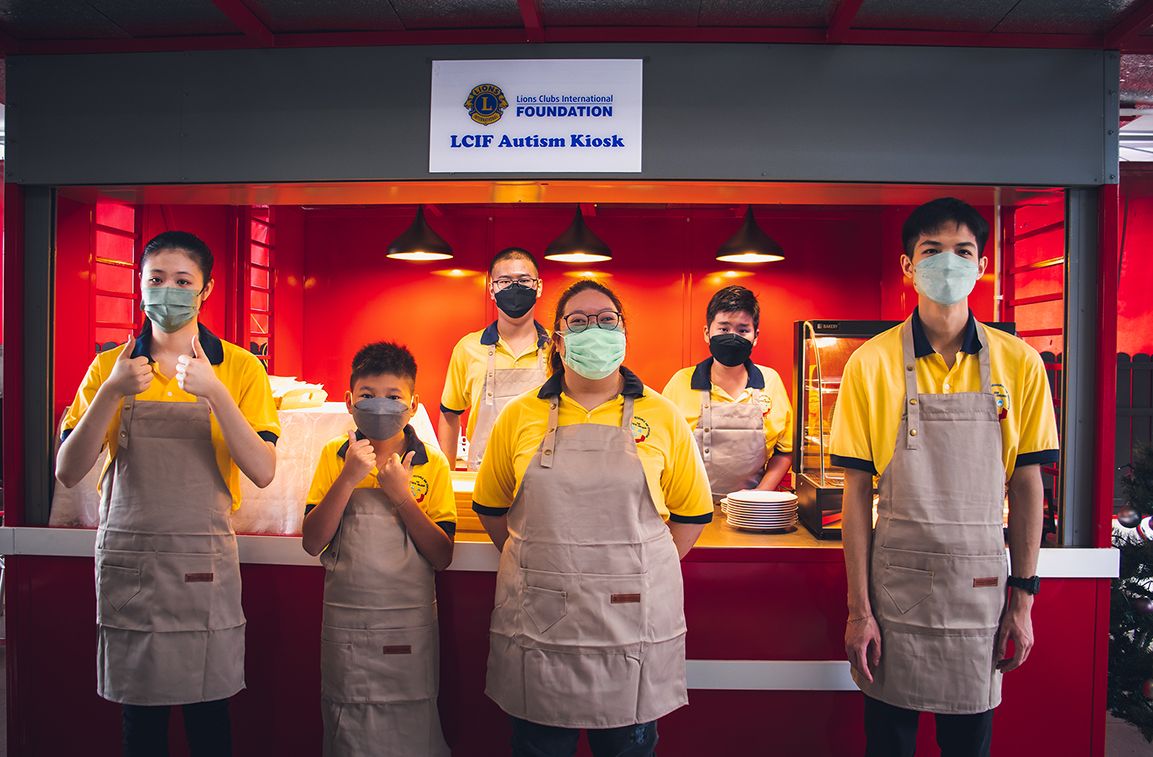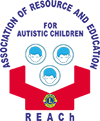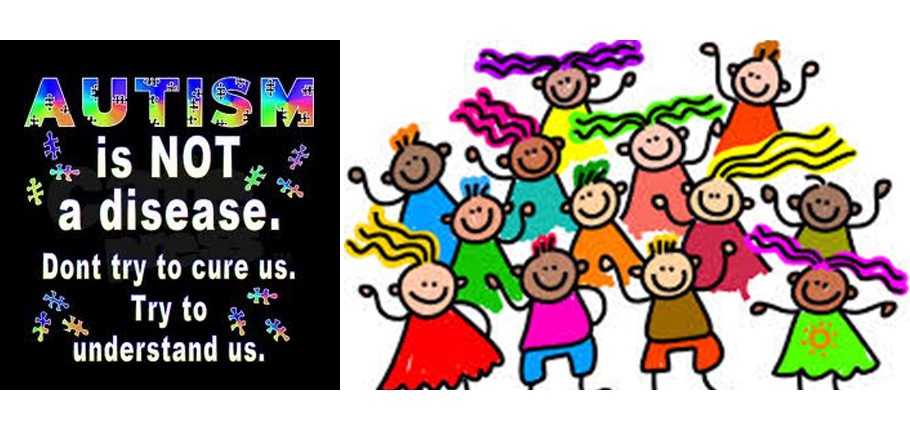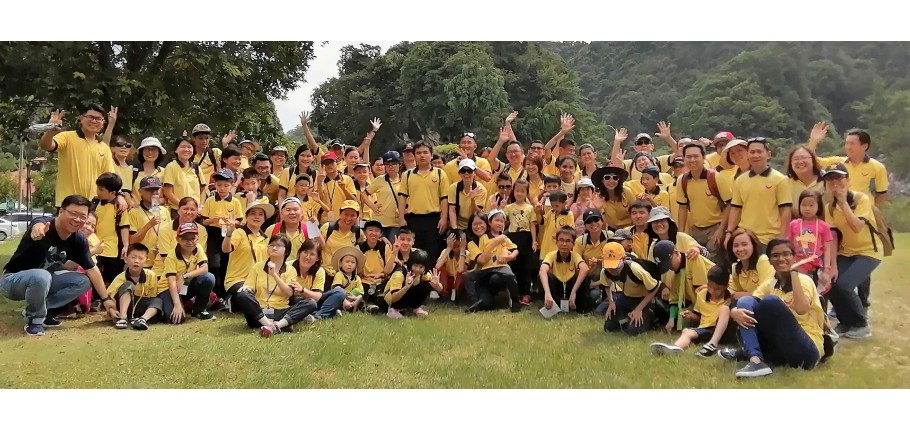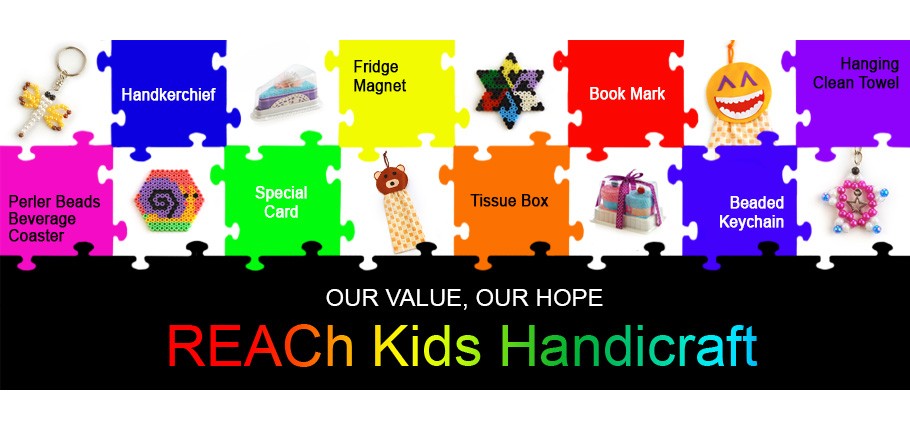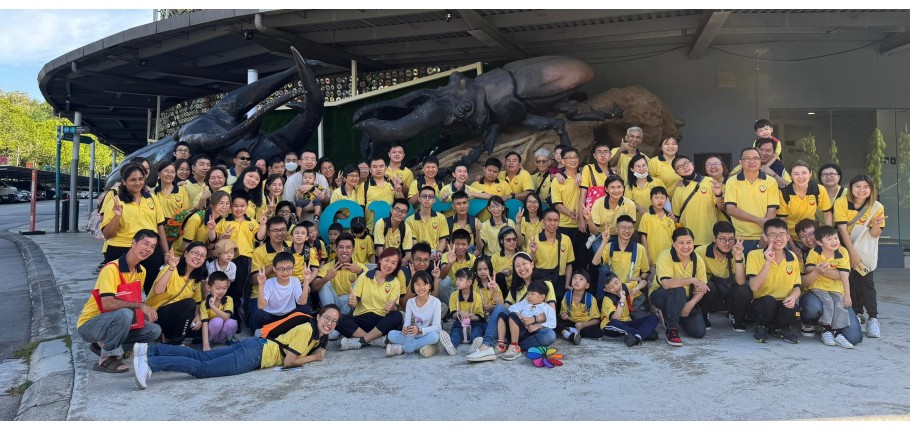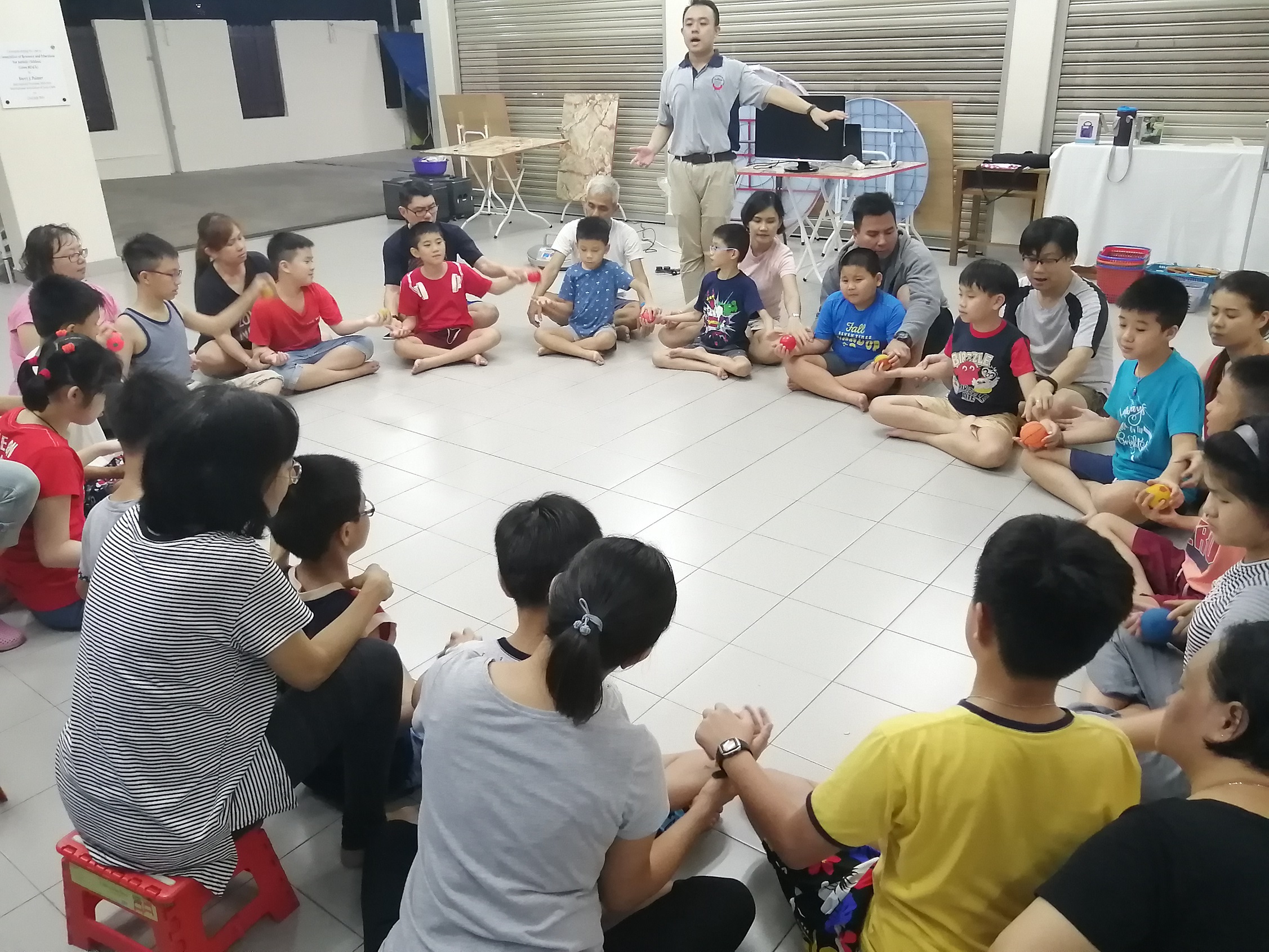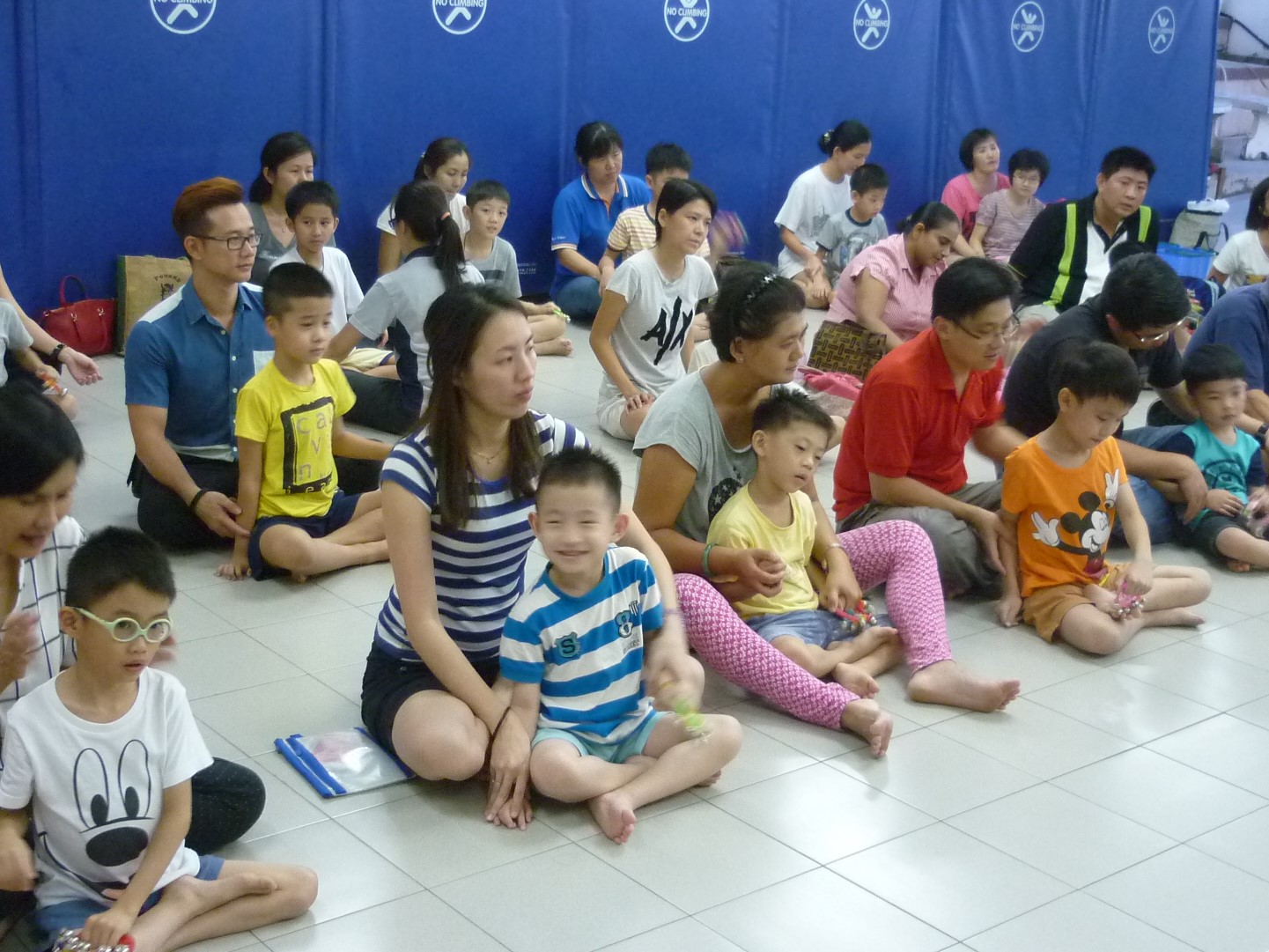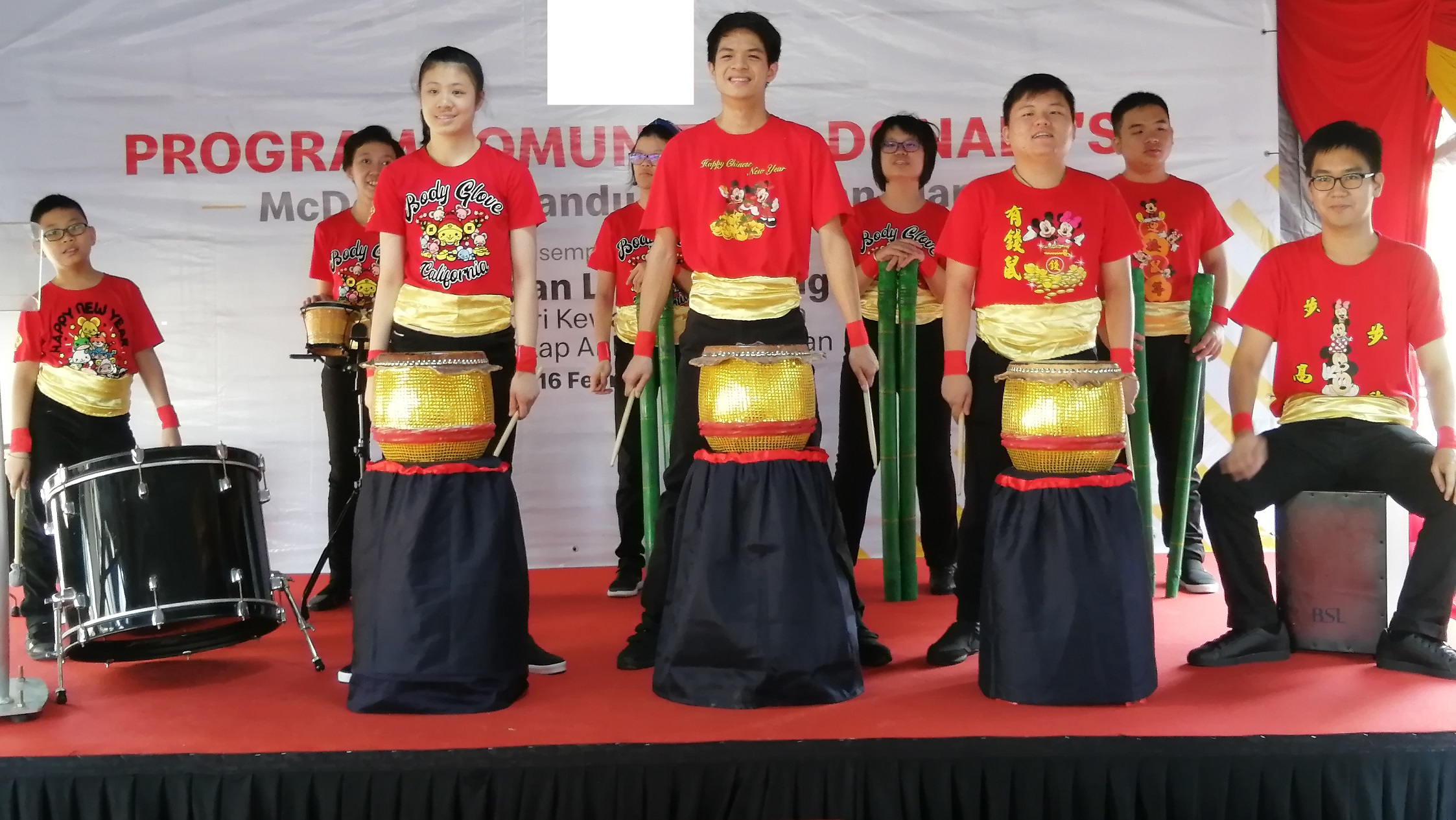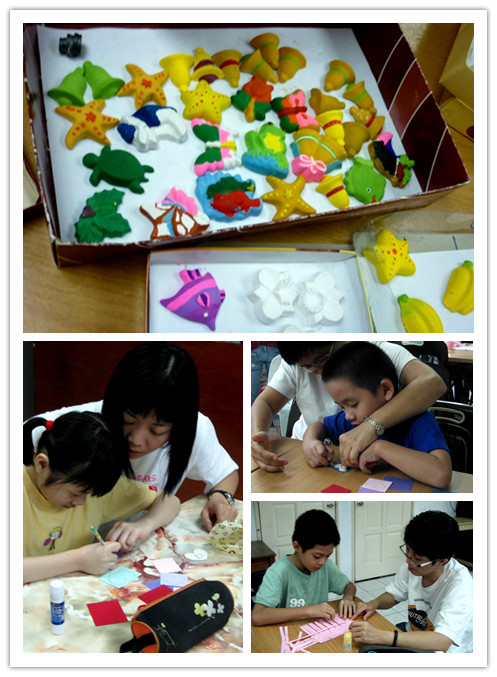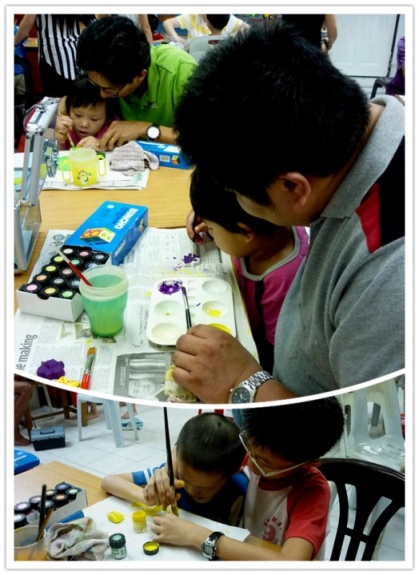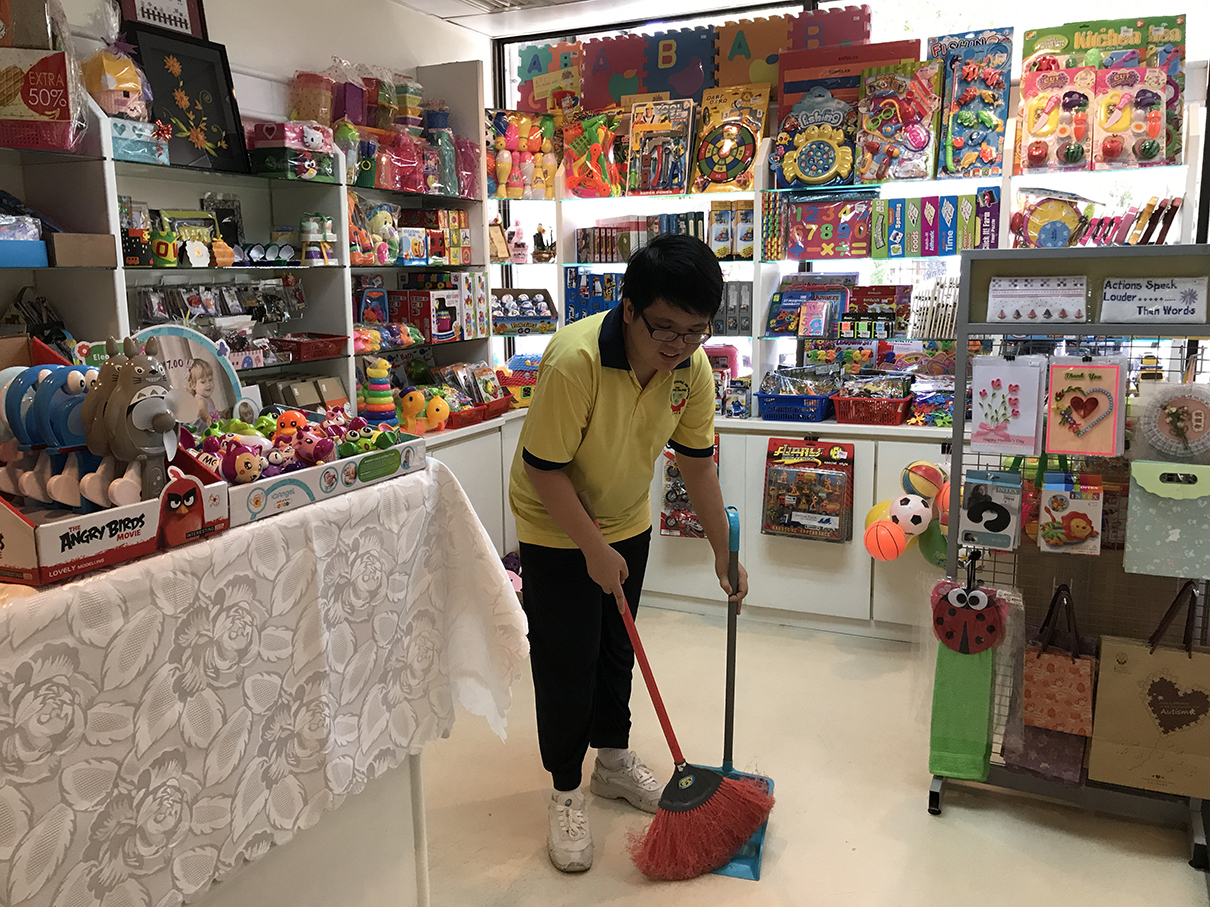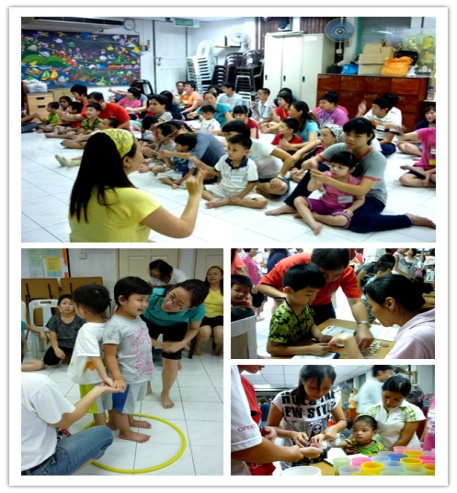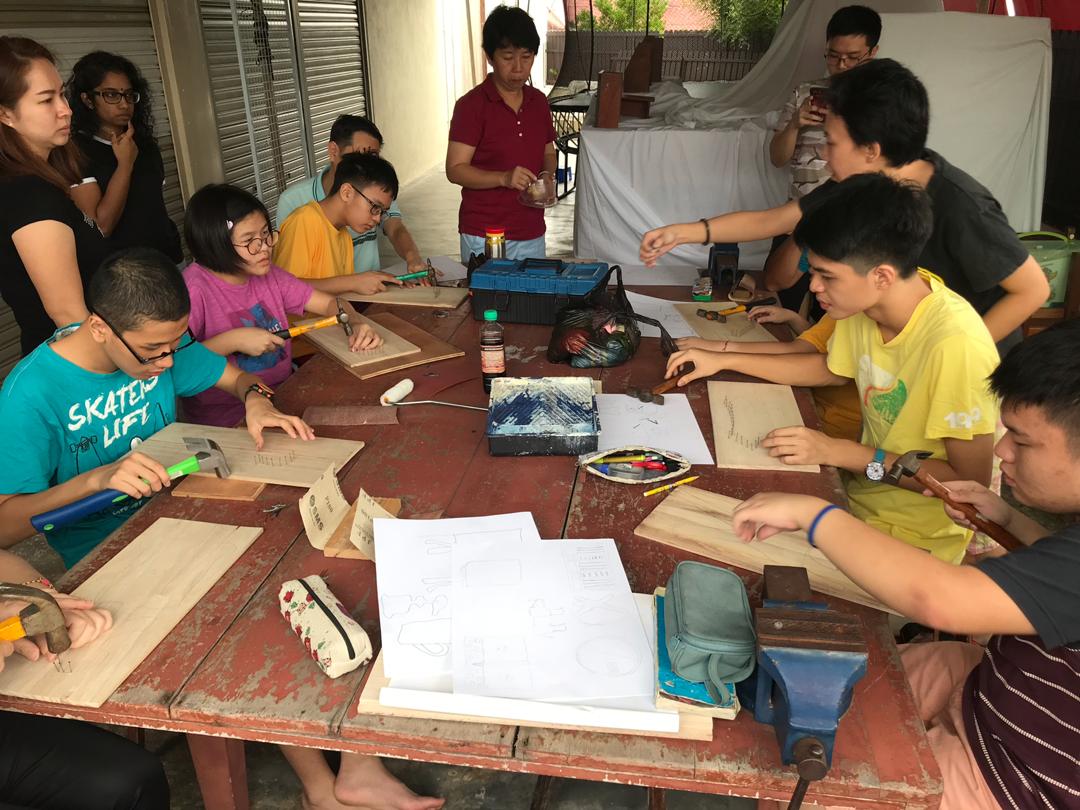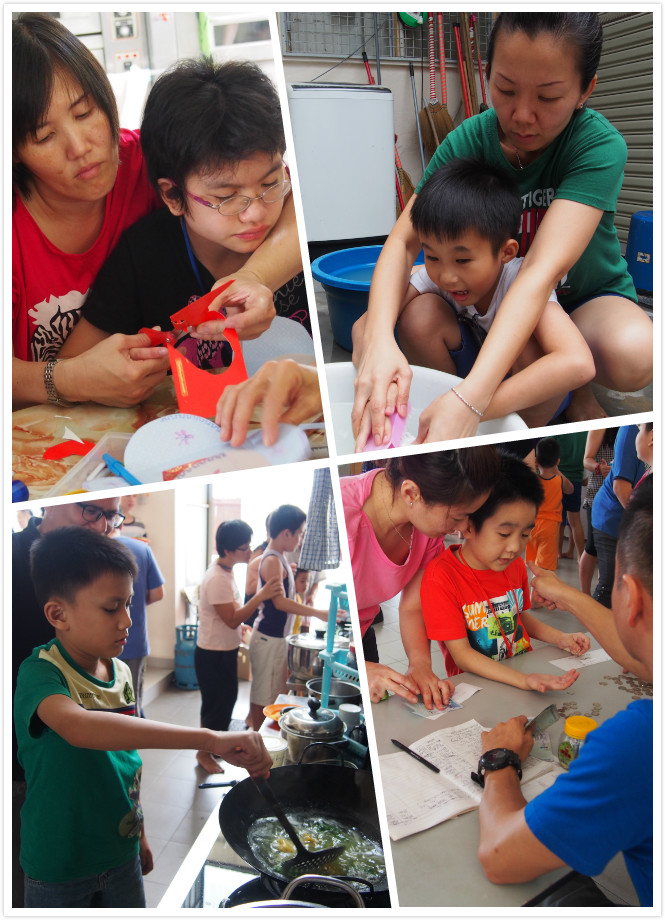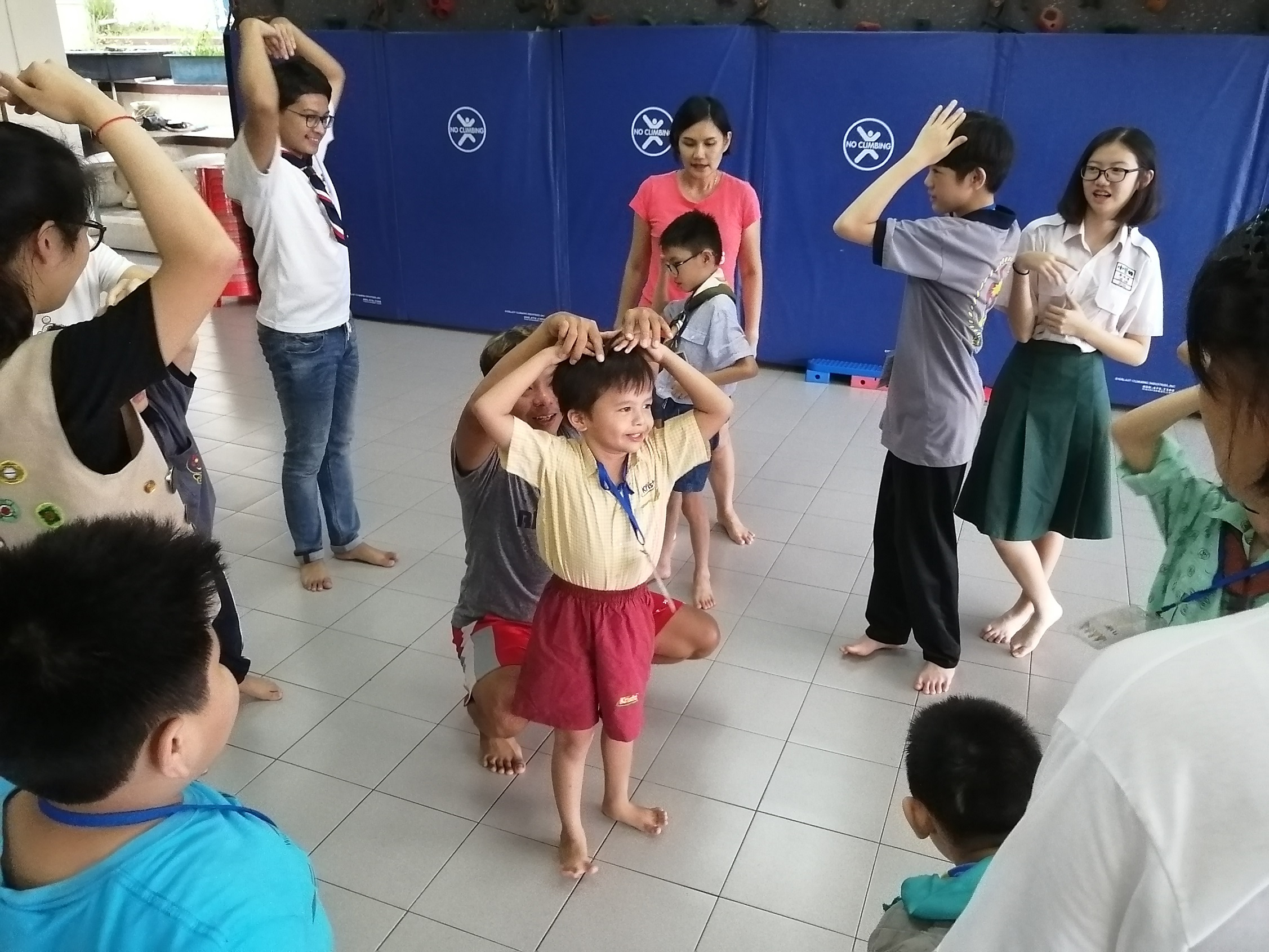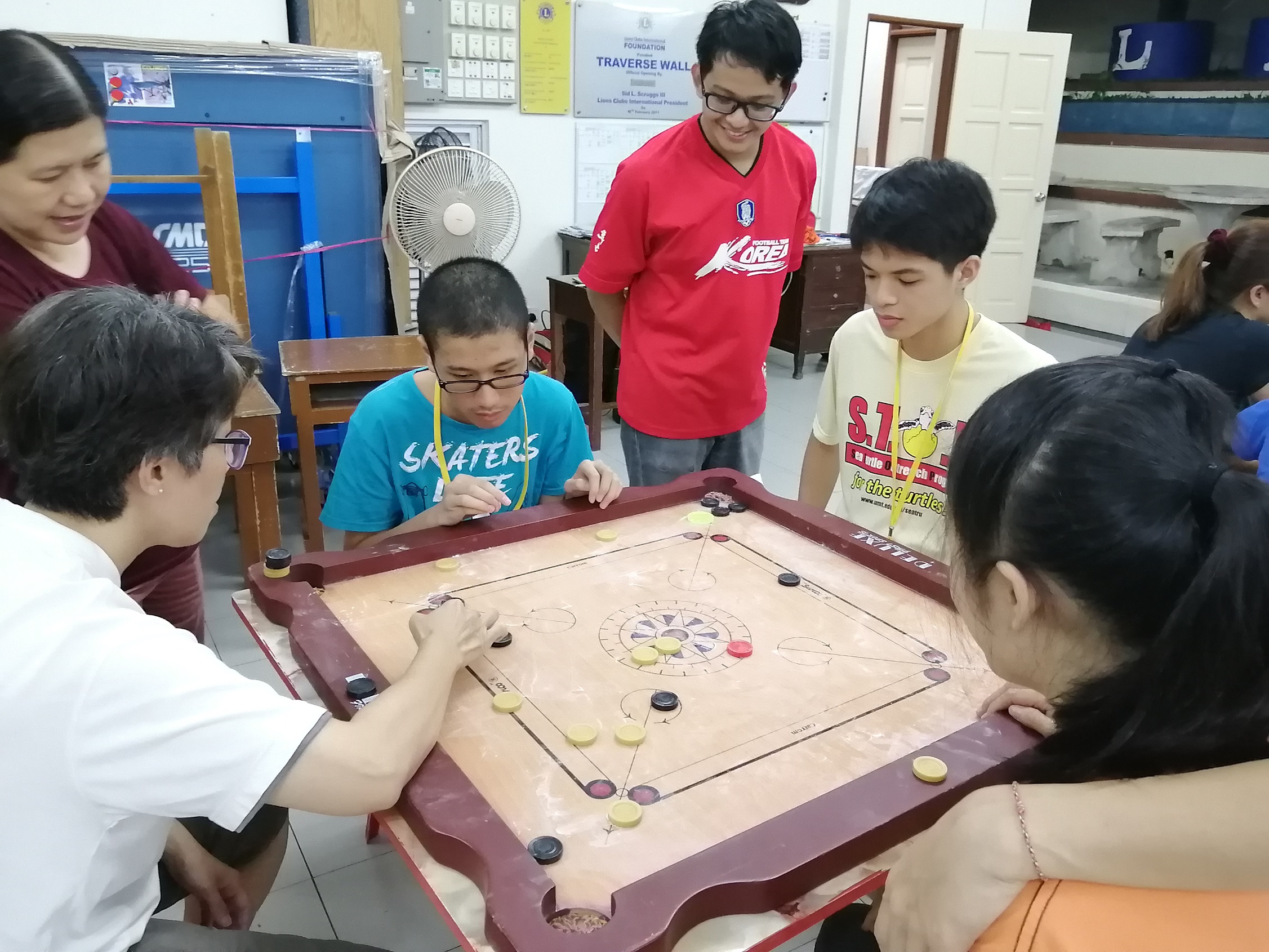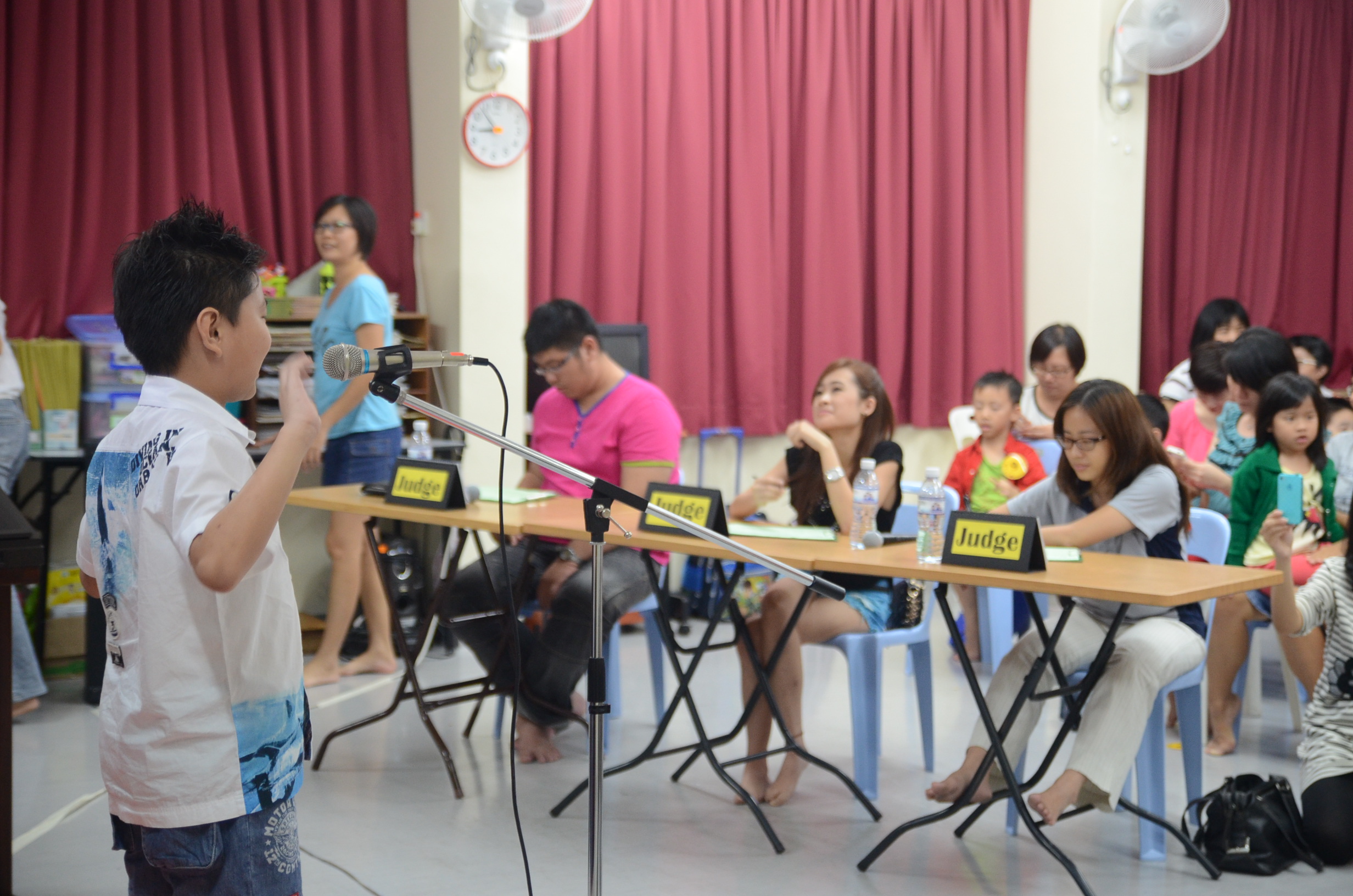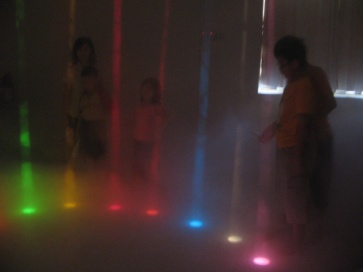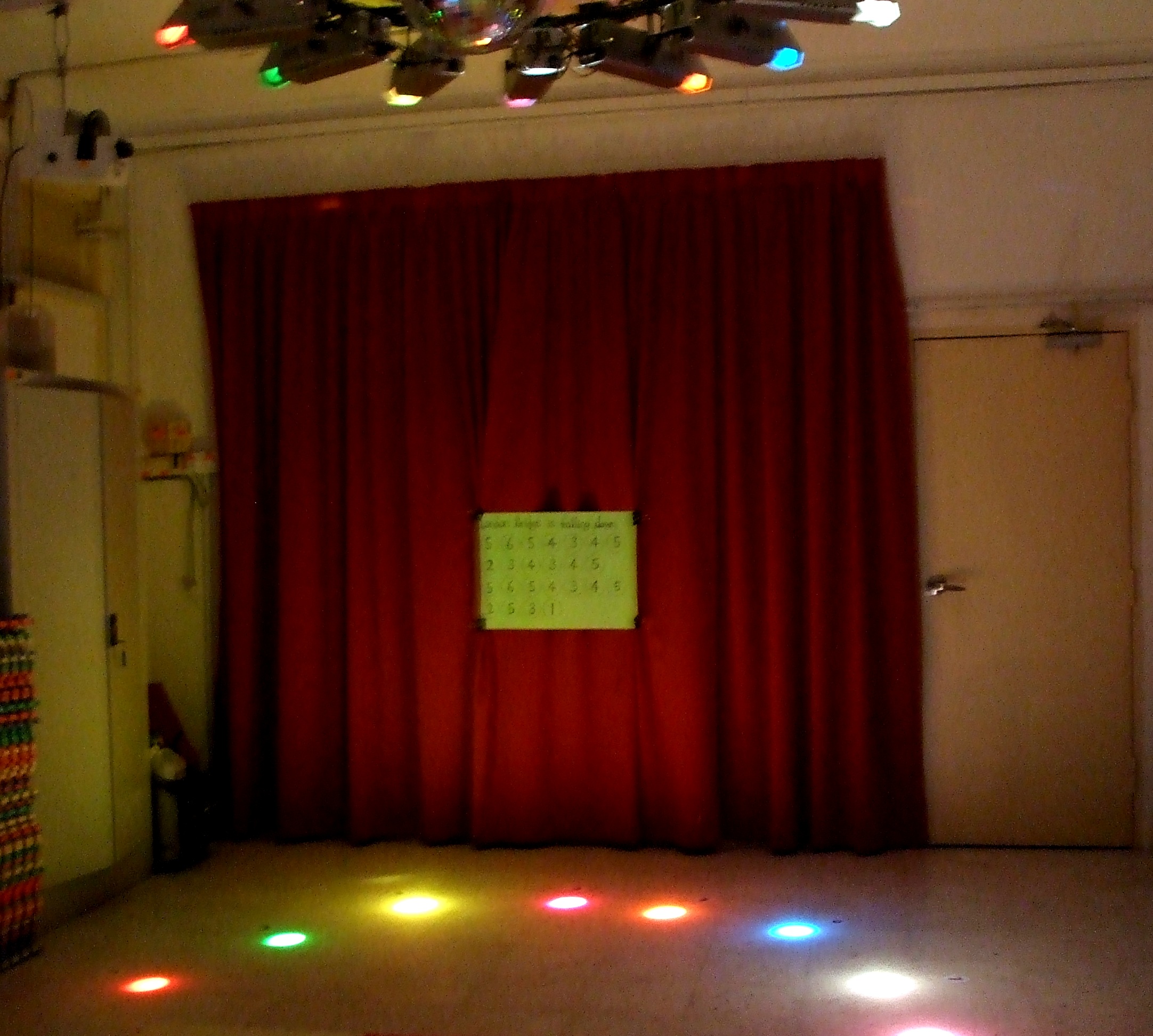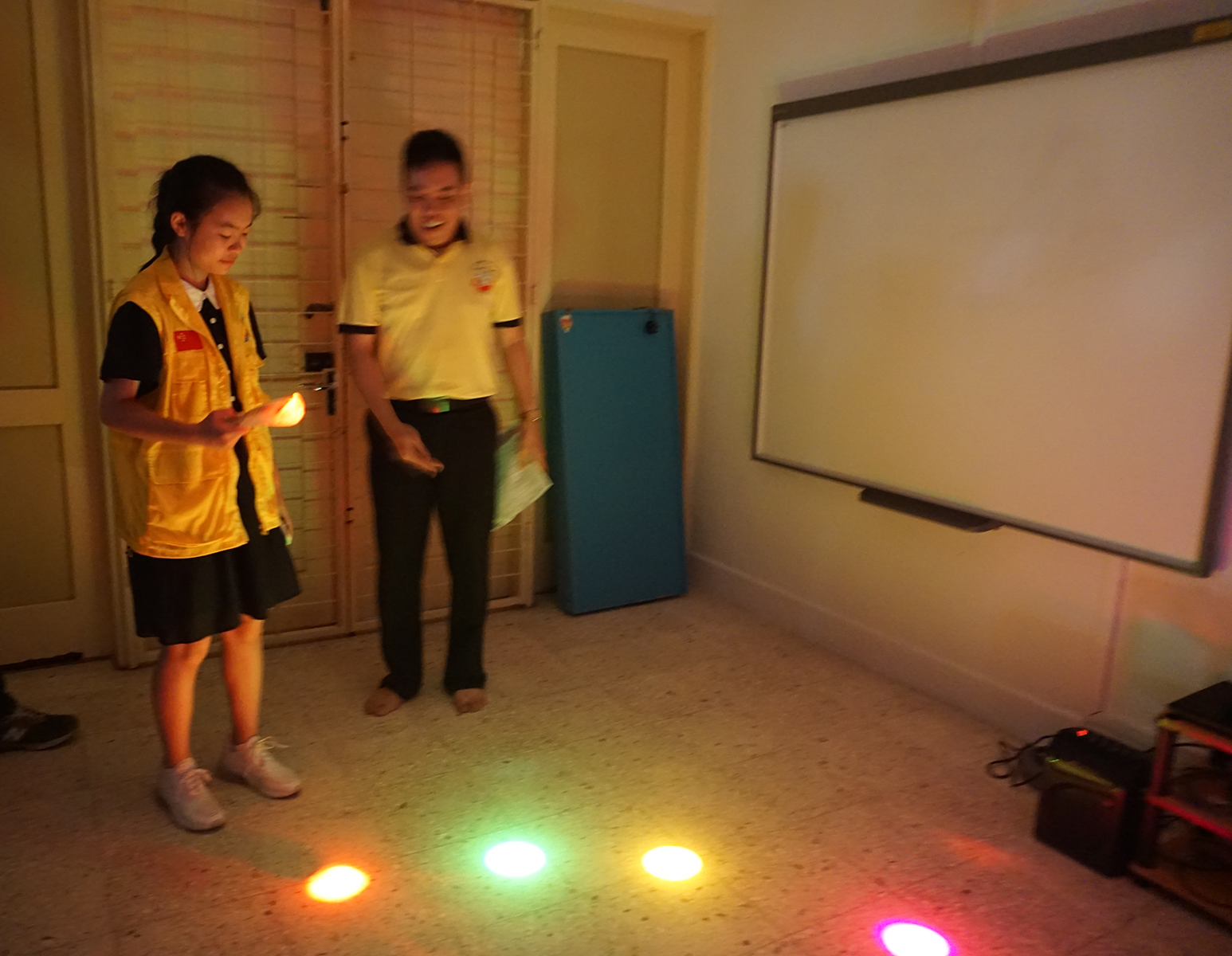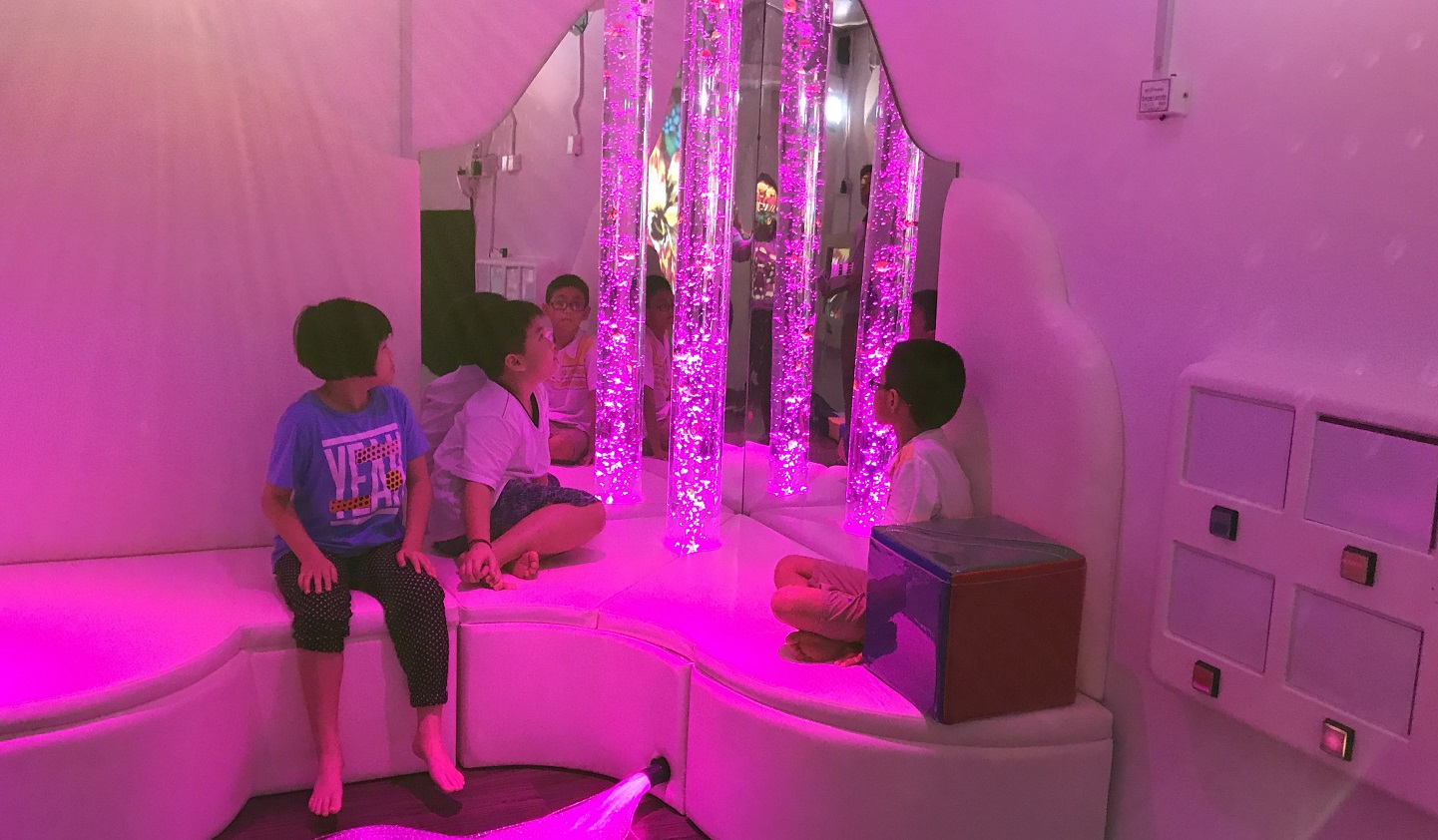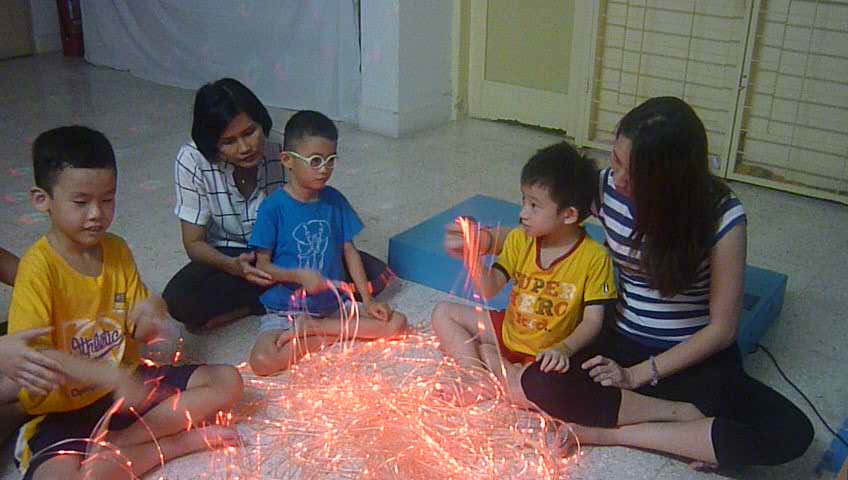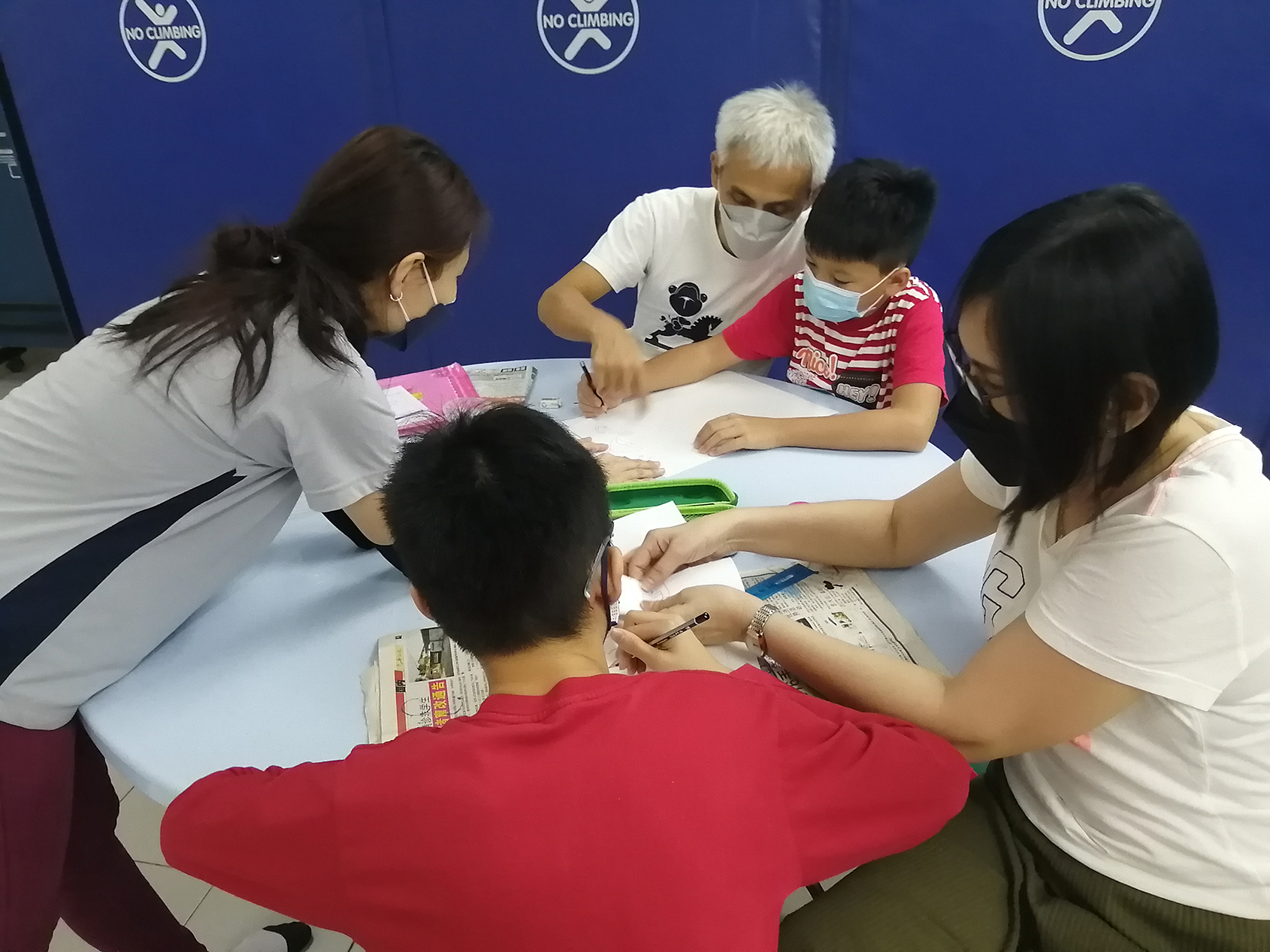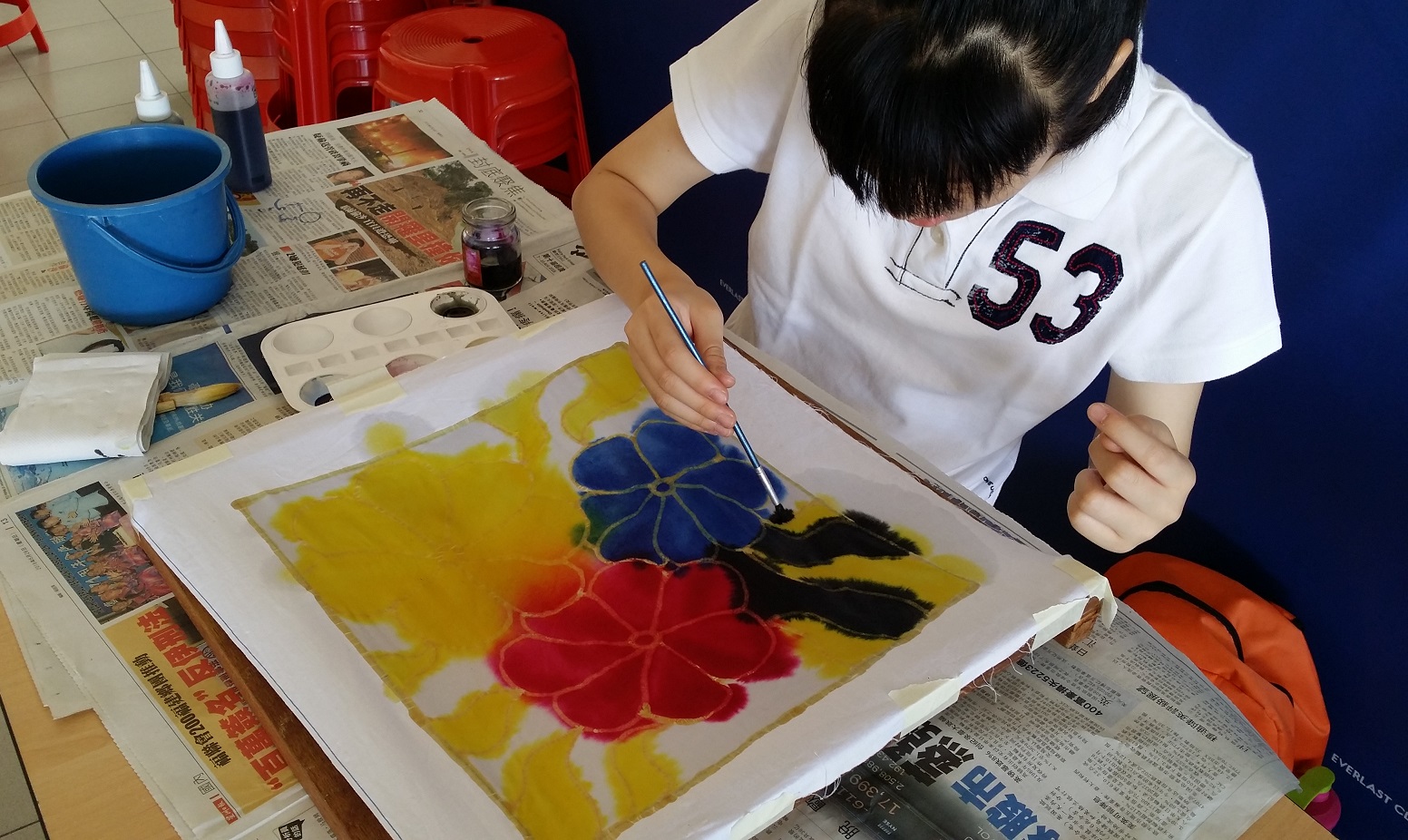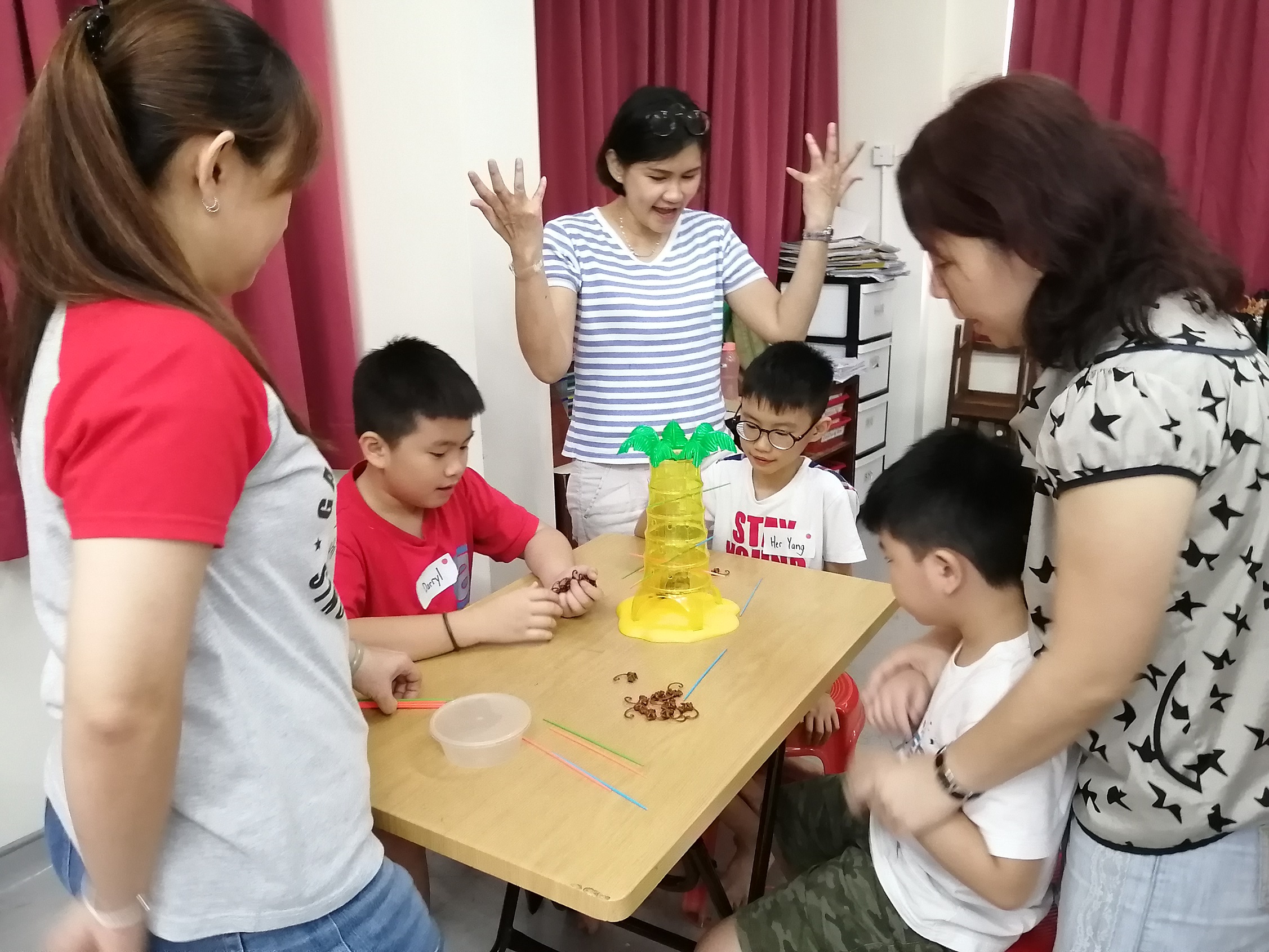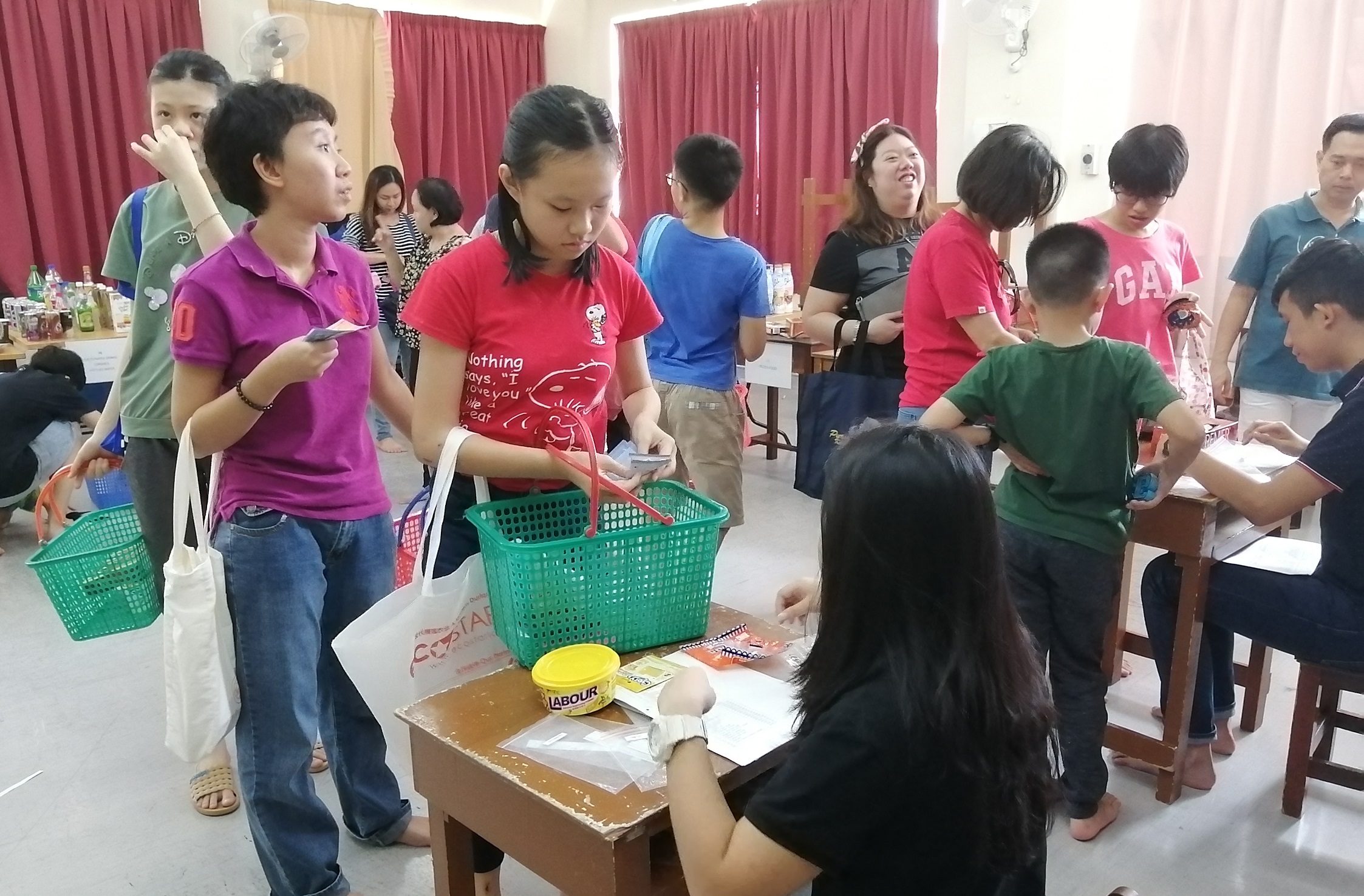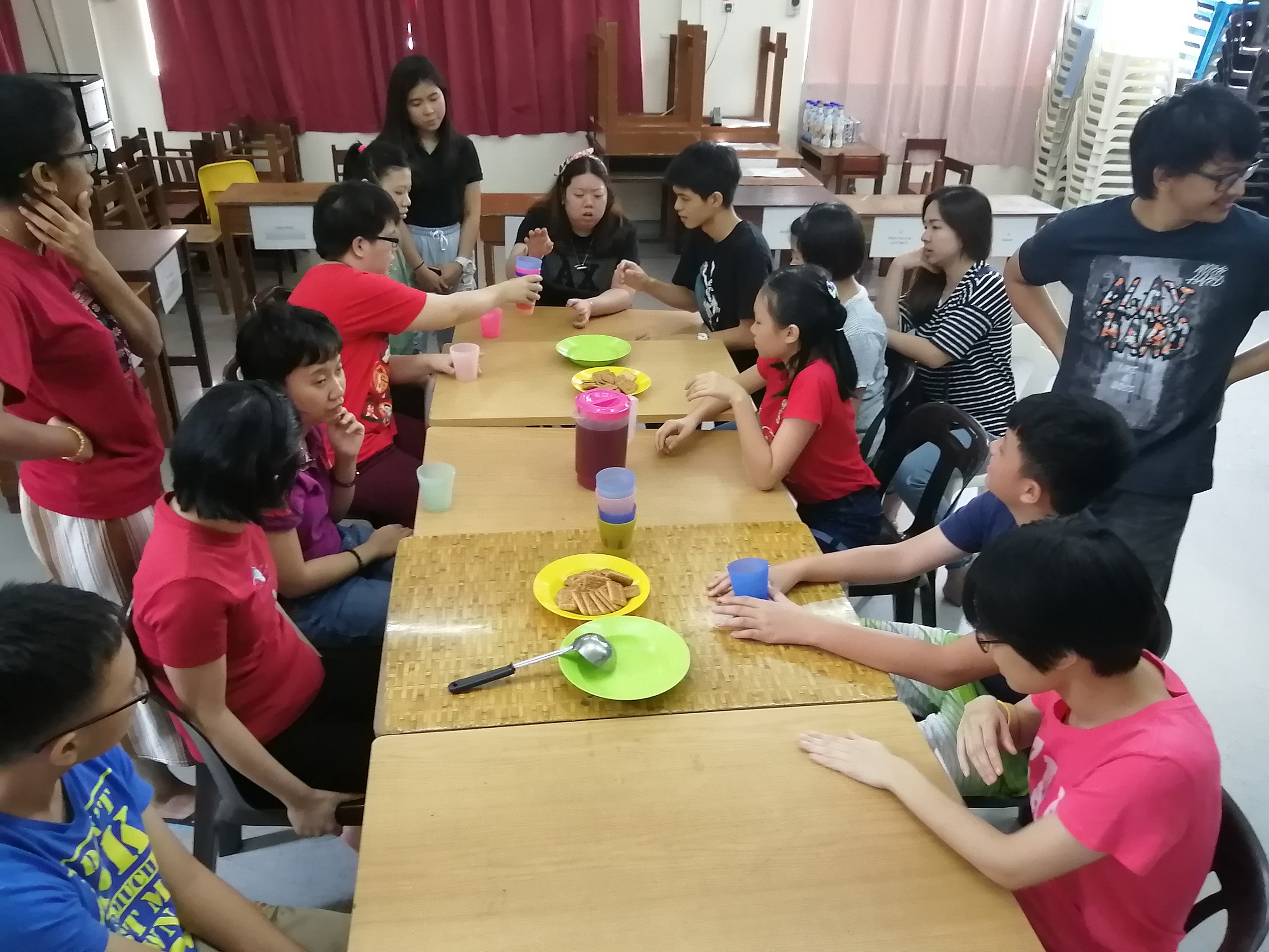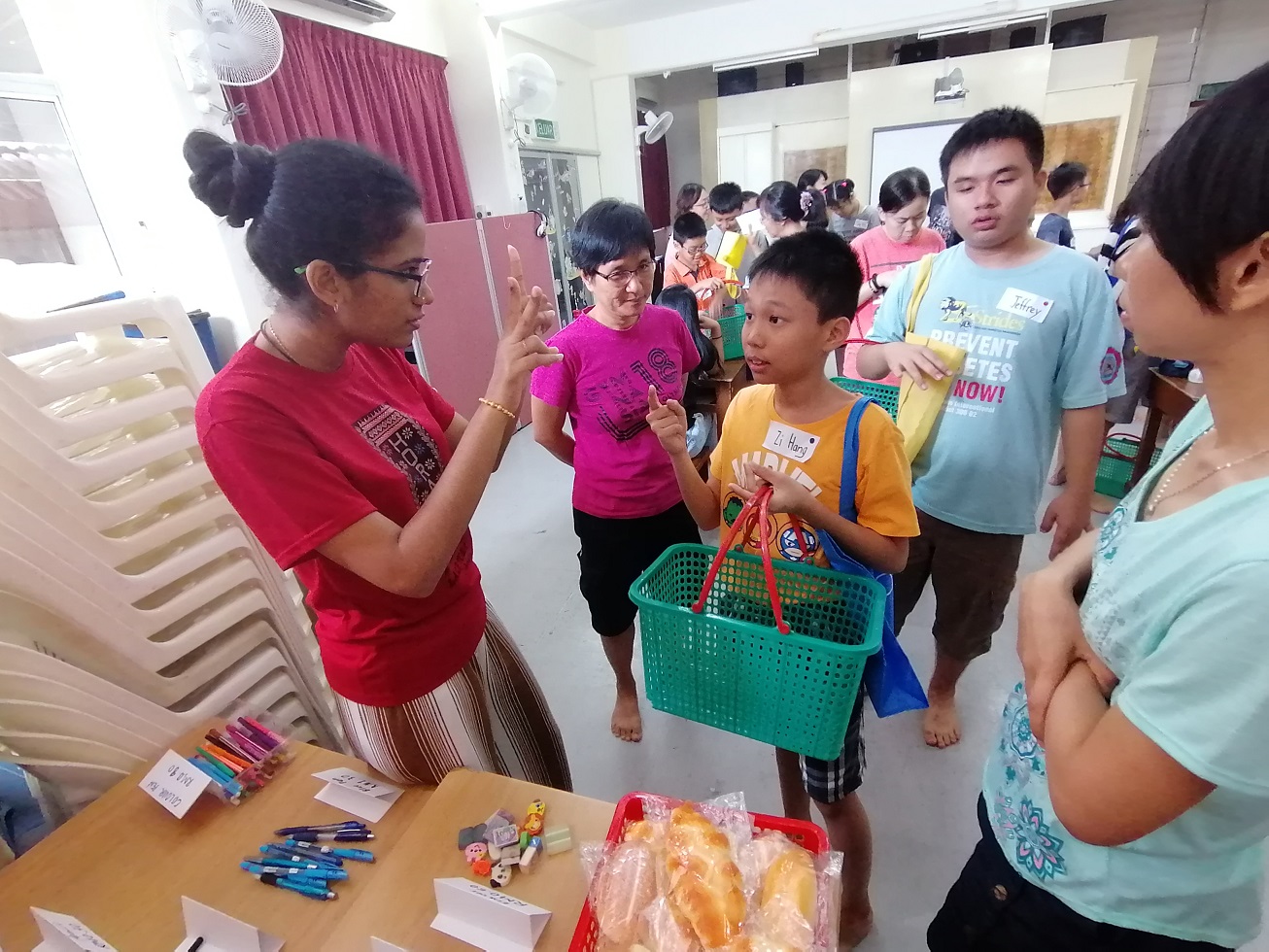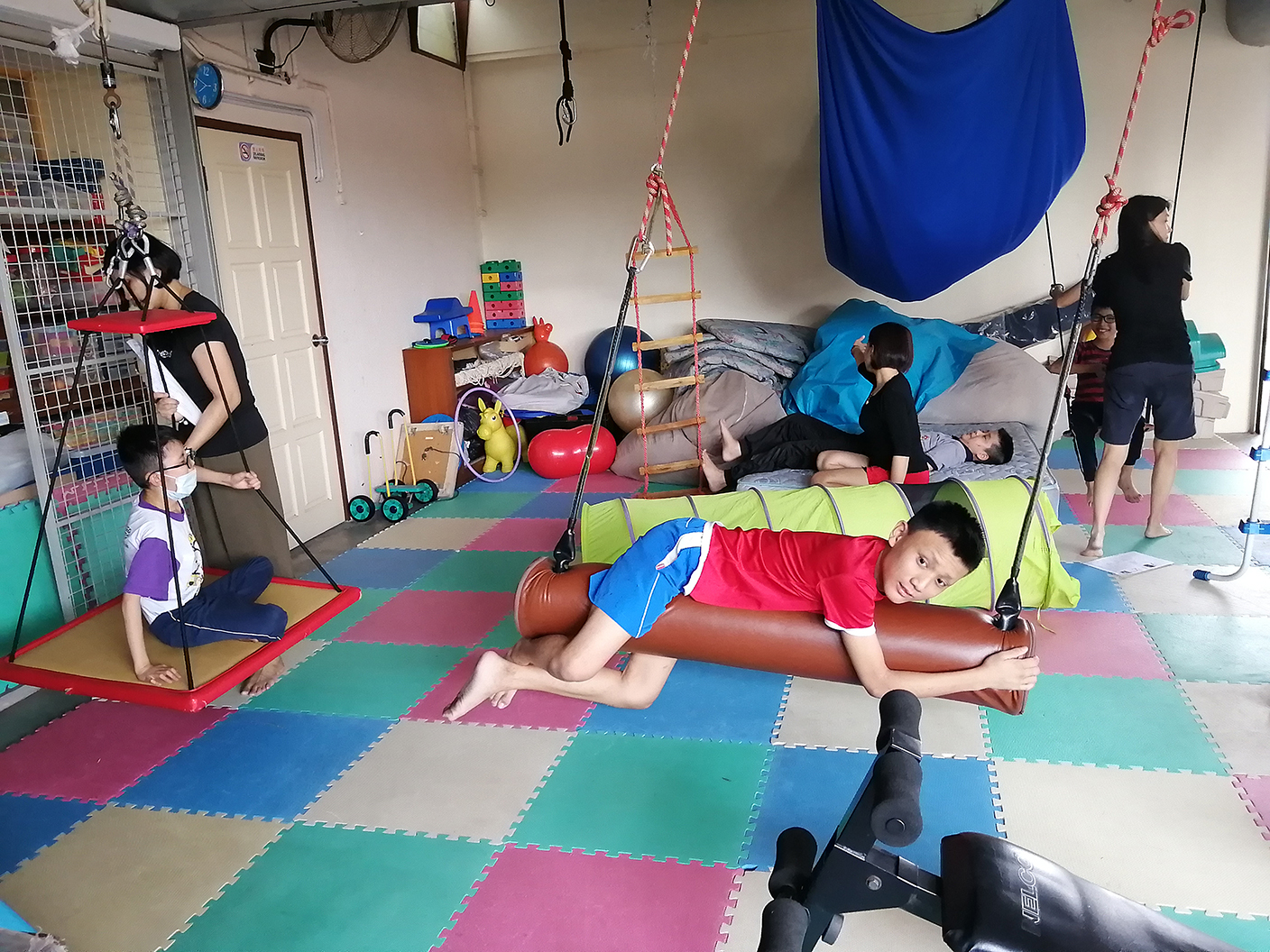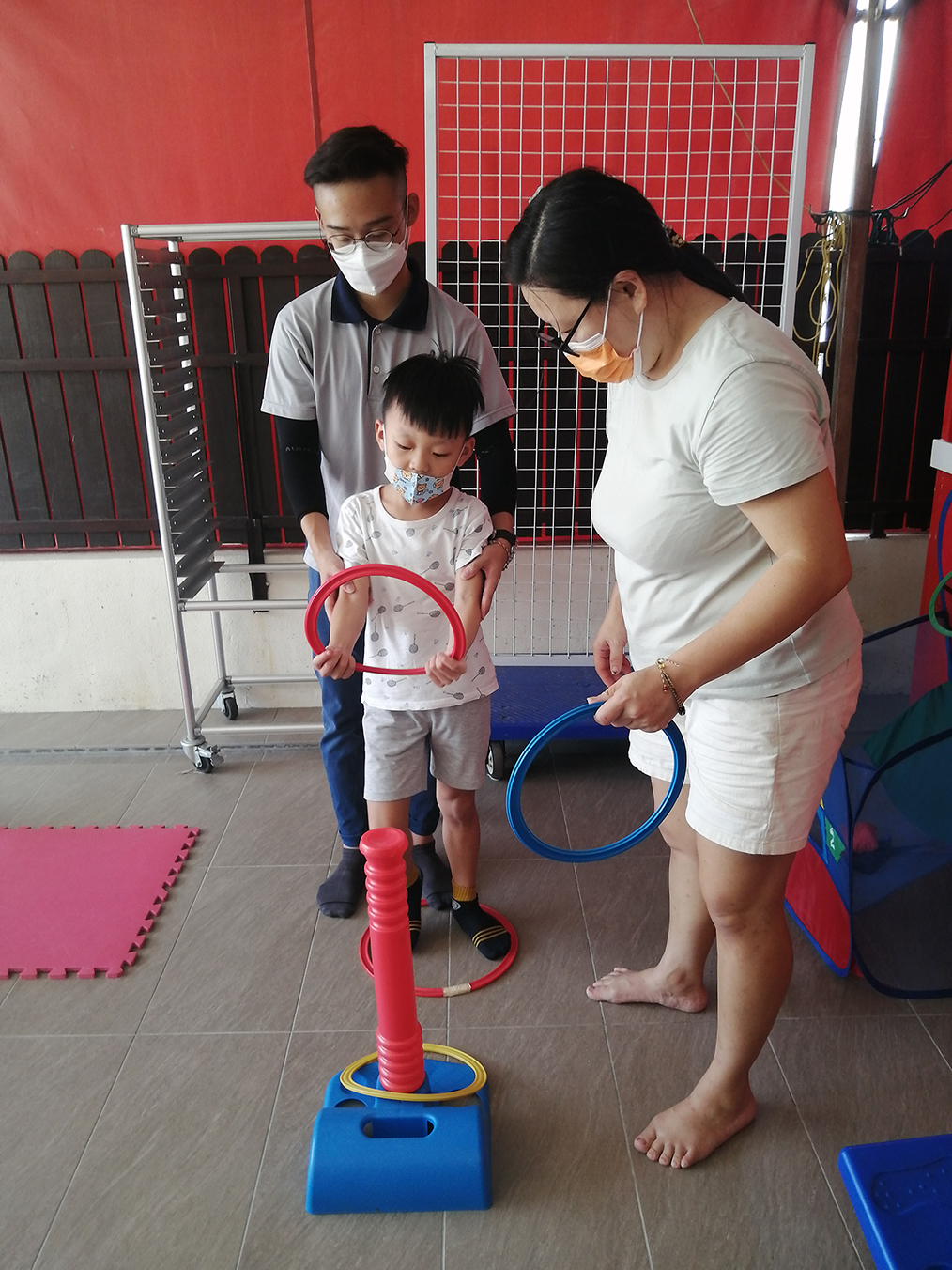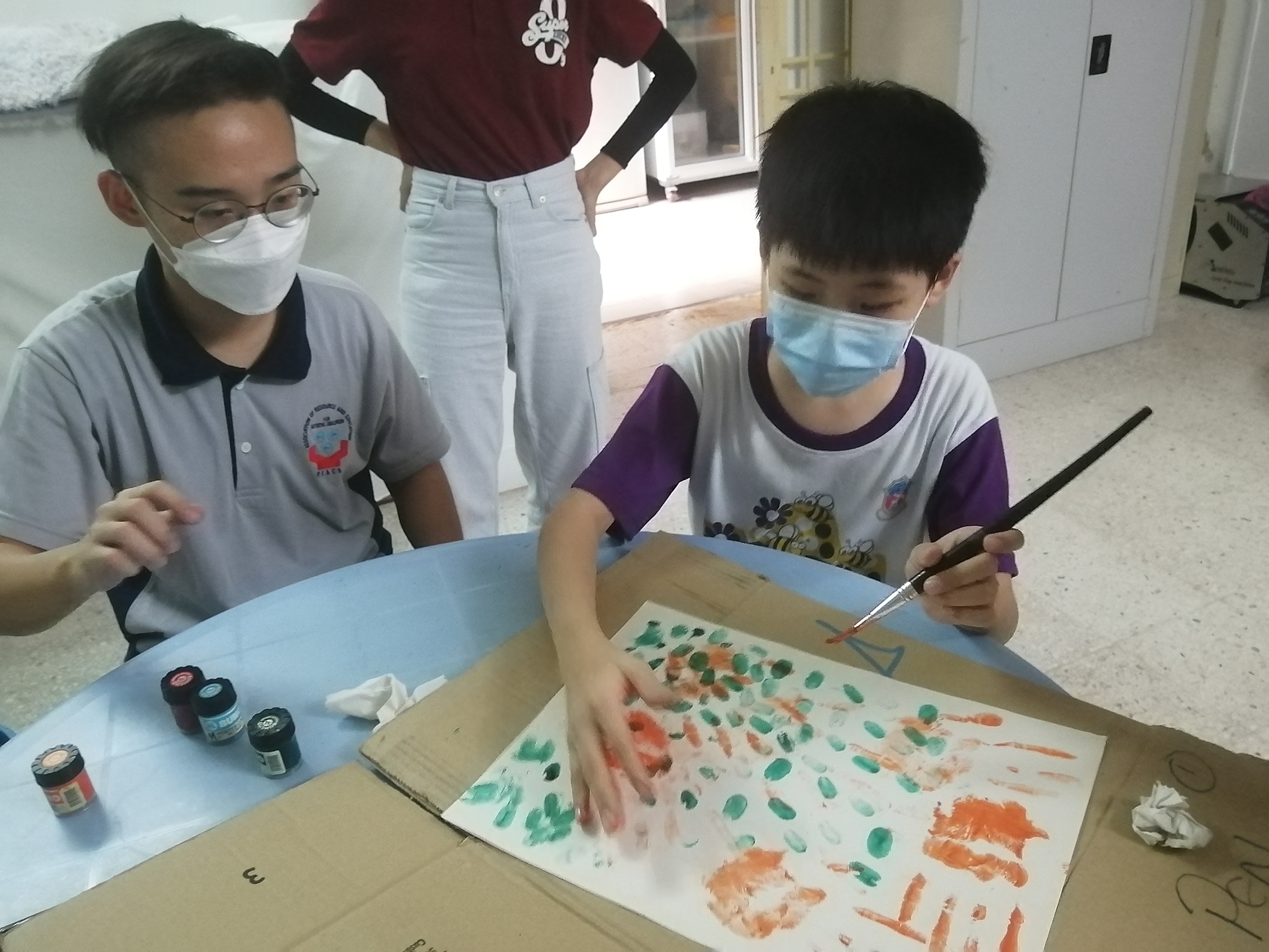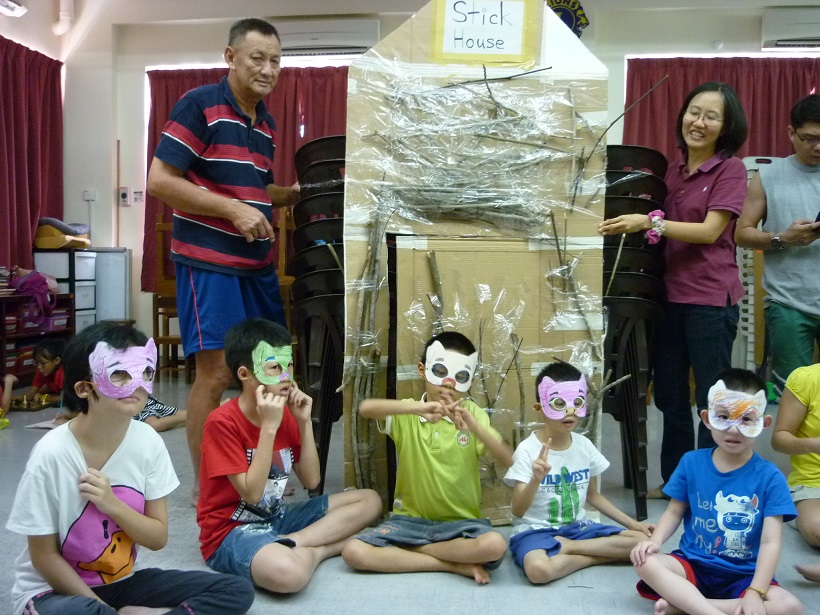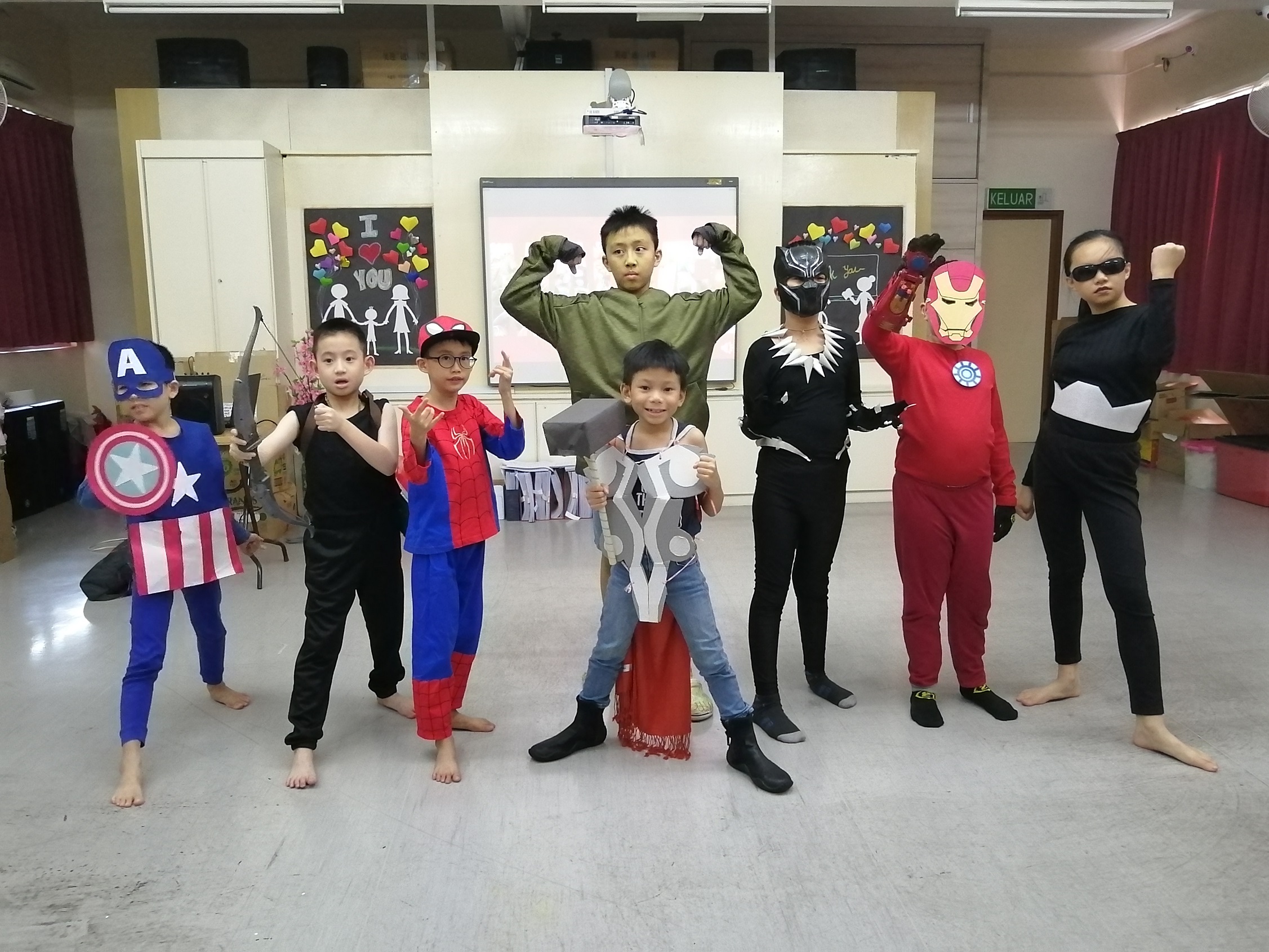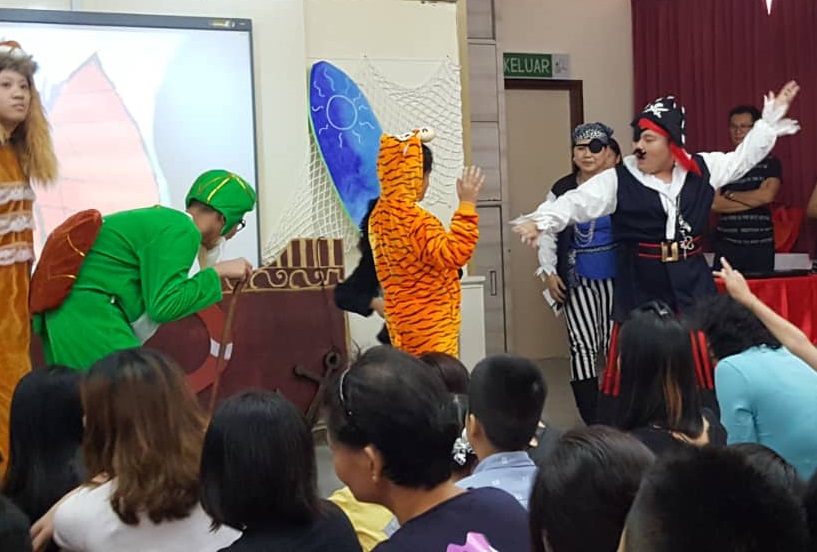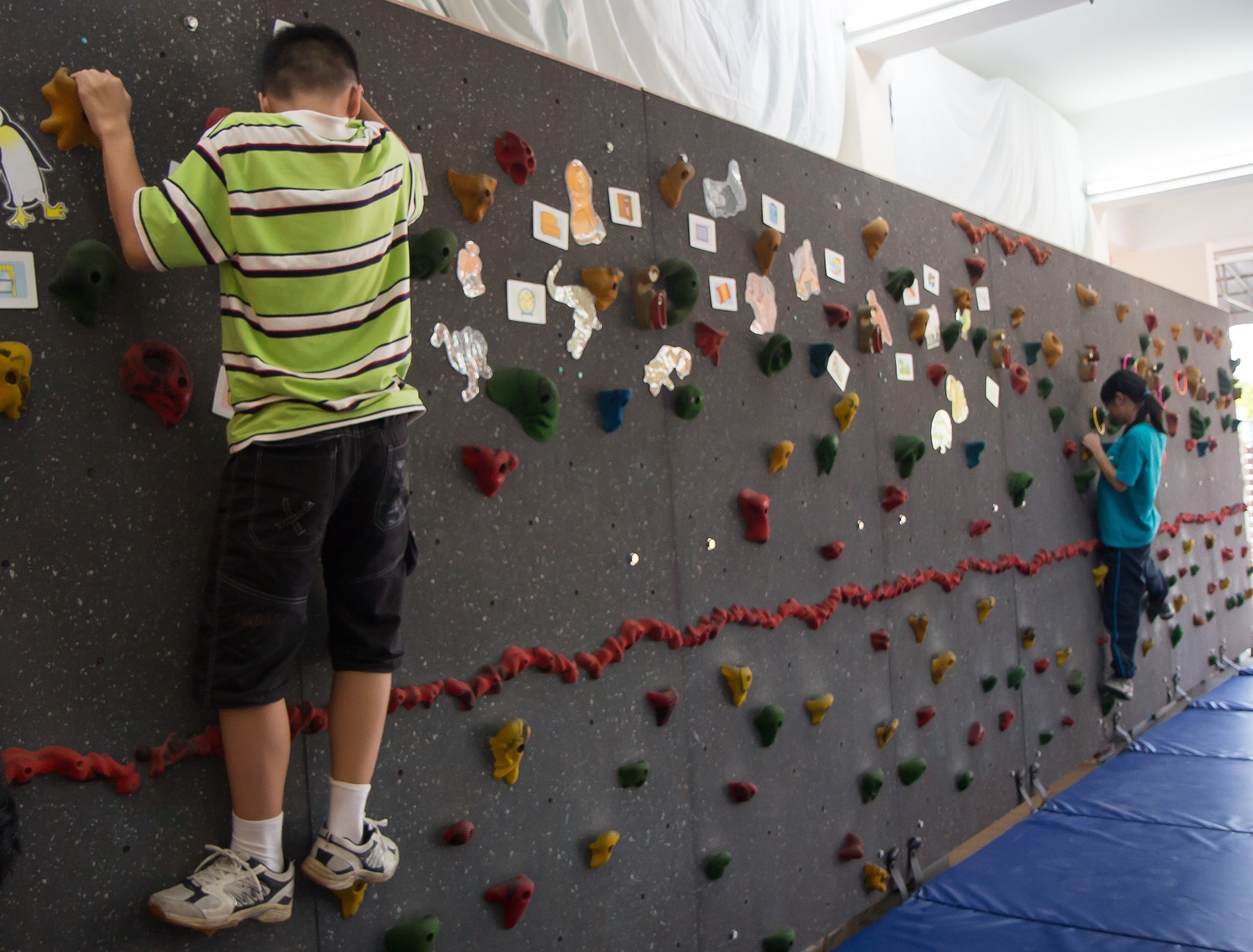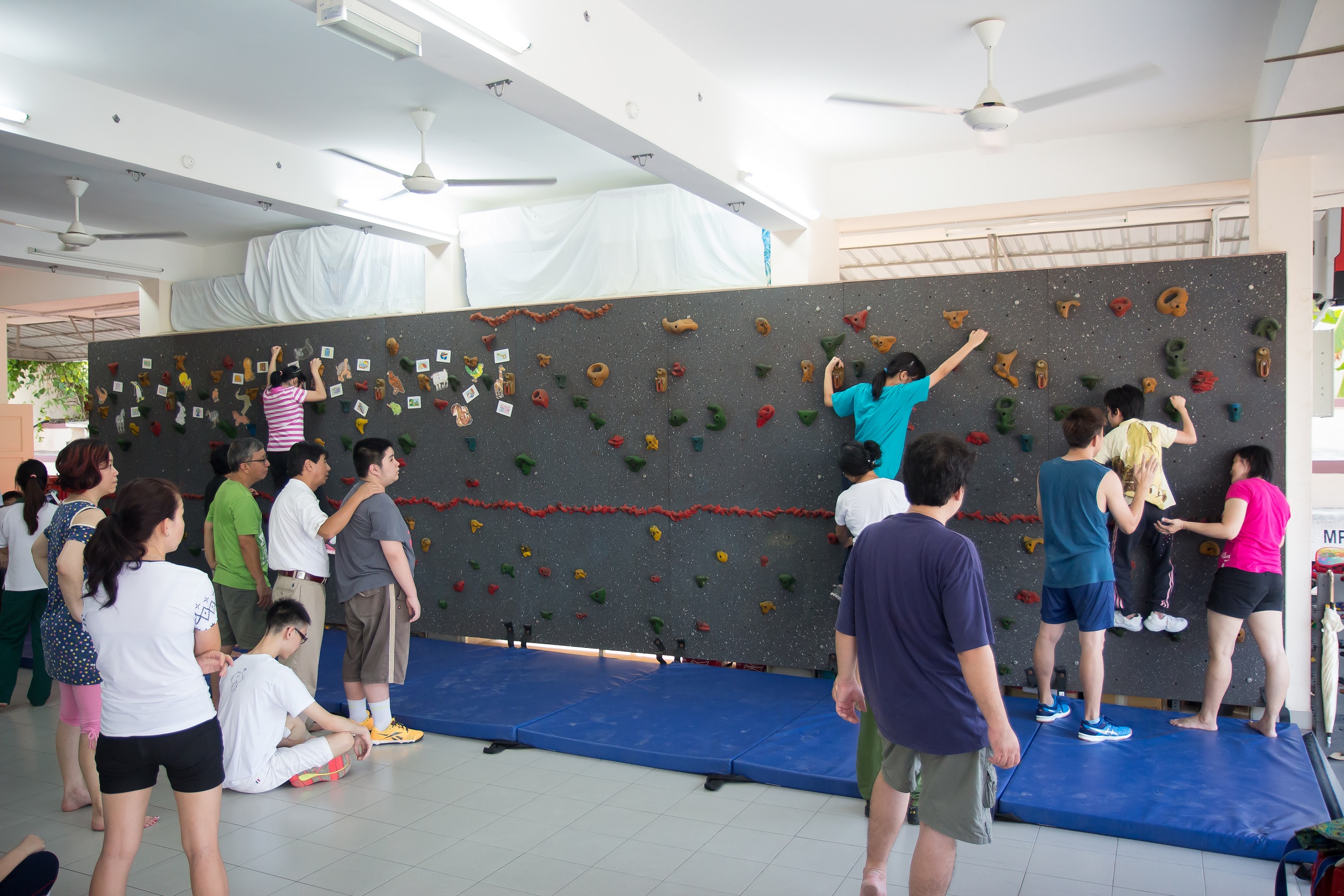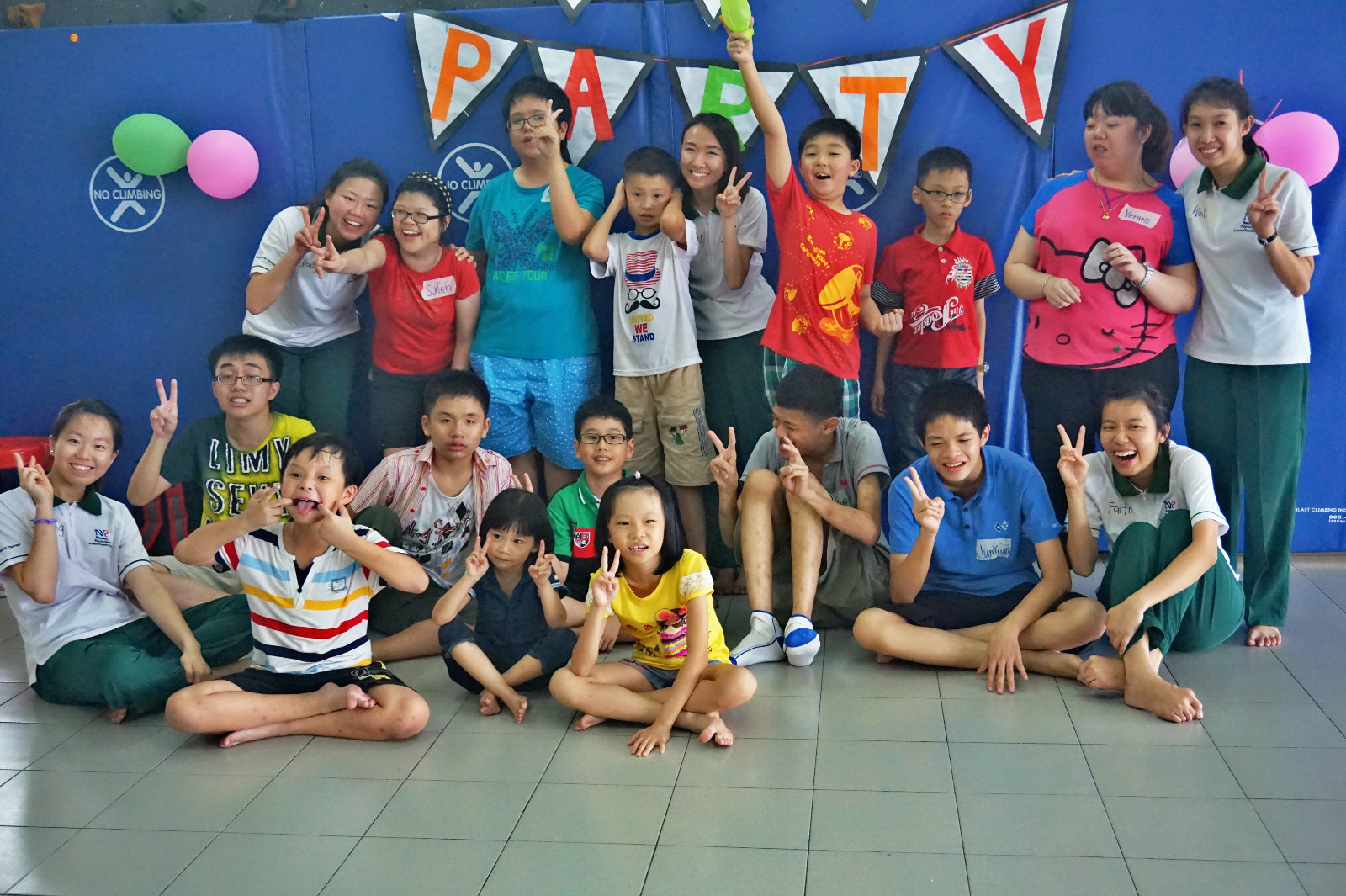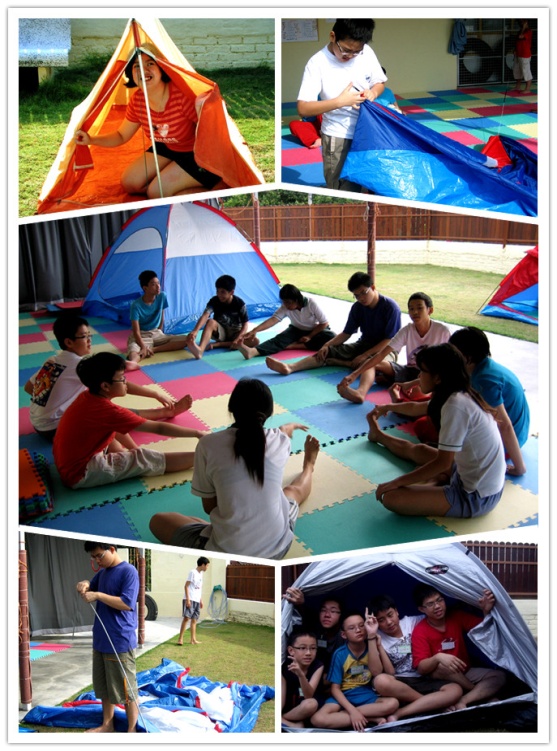Shopping Cart
0 item(s) - RM0.00Group Programmes
|
1. Music & Movement Programme The objective of this programme is to help the autistic child develop language, speech and communication; mental; social; motor and coordination; auditory; visual and tactile; and affective skills. The rhythms and harmonies of different tunes can attract the attention of an autistic child. And when this happens, the child becomes more responsive and reacts favourably as his/her sensory functions (sight, sound and touch) are gradually stimulated by the music. |
|
2. Pre-vocational & Vocational Training
We have pre-vocational training where we use art and craft to enhance aesthetic values in the children by stimulating their visual, auditory, sensory and motor abilities. We also promote good working habits such as cooperation, sharing and cleanliness when they work together in a group. We provide the children with a source of income when their hand-made products are sold and the proceeds are handed to them as their salary.
We have vocational training where we focus on preparing young adults with autism for employment through the development of essential work-related skills at Little REACh Shoppe. We hope that they can eventually seek employment at other businesses or work in the community. 3. Family Group Programme We hold family group therapy weekly. This programme is aimed at creating opportunities for the children with autism to socialise and interact with each other while learning self-help and living skills such as household work, handicraft, woodwork, preparation of meals, queueing up for the canteen, and also learn the concept of money. Parents or family members are required to be with the children to provide support for each other and receive training on how to handle the children with autism at home and outside. This group session is conducted entirely by parents with the help of volunteers.
4. Play Group Therapy Play is an important part of a child’s life, and the lack of play skills isolates the autistic child from others. Generally, children with autism have problems in generating pretend play. Play may reduce repetitive and rigid behavioural patterns in children with autism. Overall, play addresses impairments such as social interaction, social communication and imagination in children with autism. |
|
5. Lions OptiMusic Programme Lions OptiMusic utilizes a unique combination of light and sound to train children with autism to explore and interact with their environment. It provides a training tool for them to learn cause-and-effect by using light and sound to compose patterns and songs. The user breaks the visible light beams with a reflective bat or glove to activate a chorus of sounds, i.e an orchestra of instruments, whole songs and melodies or a cacophony of animal, transport or comedy sounds. The user can alternatively place a reflector on the floor and strike a note using his finger, foot, hand and whole body. It is a liberating tool in the sensory environment. The bright colourful beams of light act as powerful stimuli for children with autism to locate and focus on the source of the music. These visual reference points help children with autism to realise that their movements can control the sounds they hear, thus empowering them to influence their environment. Once their interest and attention is held, this tool next trains interaction, communication and self-expression skills. |
|
6. Snoezelen Programme This therapeutic room provides an environment for tranquility and relaxation through visual, auditory and touch stimulation. The gentle stimulation has a soothing effect that helps to reduce temper tantrums and agitation in the autistic child. We plan structured stimulation and activities for the children in the room. The children are calmer when the stimulation and activity are given one at a time as we prepare them to receive changes. Encouragingly, the children learn to cope with changes under this soothing environment. |
8. Social Living Skills Training Social Living Skills Training uses purposeful activities to help children with autism achieve their greatest level of independence in their day-to-day activities such as social skills, money management, time management and performance in order to prepare them for transition and inclusion into school and society. The group participates in activities which develop, maintain and improve skills which are necessary for them to cooperate and work together as a team yet independently perform living skills such as house chores, shopping, managing money and time and community living. 9. Sensory Integration Programme Sensory integration is a process that allows us to take in information through the senses and put the information into a form that helps us make sense of the environment. The senses include touch, vision, hearing, smelling, tasting, movement sense (vestibular) and joint sense (proprioception). Dysfunction in this area makes it difficult for children with autism to adapt to and function like others in their environment. They may be hypersensitive to sound or touch, and consequently unable to screen out distracting noise or tolerate clothing textures; or hyposensitive to sound or touch, and consequently not responsive to them. We provide sensory-based activities to enable children with autism to better regulate their behavioral responses to sensations and situations that they find disturbing or painful. 10. Storytelling Programme This is a session where stories are created and played out by teachers to stimulate the children to develop receptive (listening and understanding) and expressive skills, imagination and creative thinking, role play and dramatization, and social skills. We also use stories and real-life situations to teach values. All stories incorporate appropriate speech, communication, actions, emotions and social behaviours. |
11. Pottery Class
The pottery class was introduced as a new programme in March 2011. This activity is for children aged 13 and above. This programme is aimed at improving the children’s gross and fine motor skills, training their sensory issues and improving their listening and communication skills. We hope to encourage children’s creativity, expression and socially appropriate behaviour. Through the pottery class, we also provide an opportunity for young adults to participate in a recreational activity.

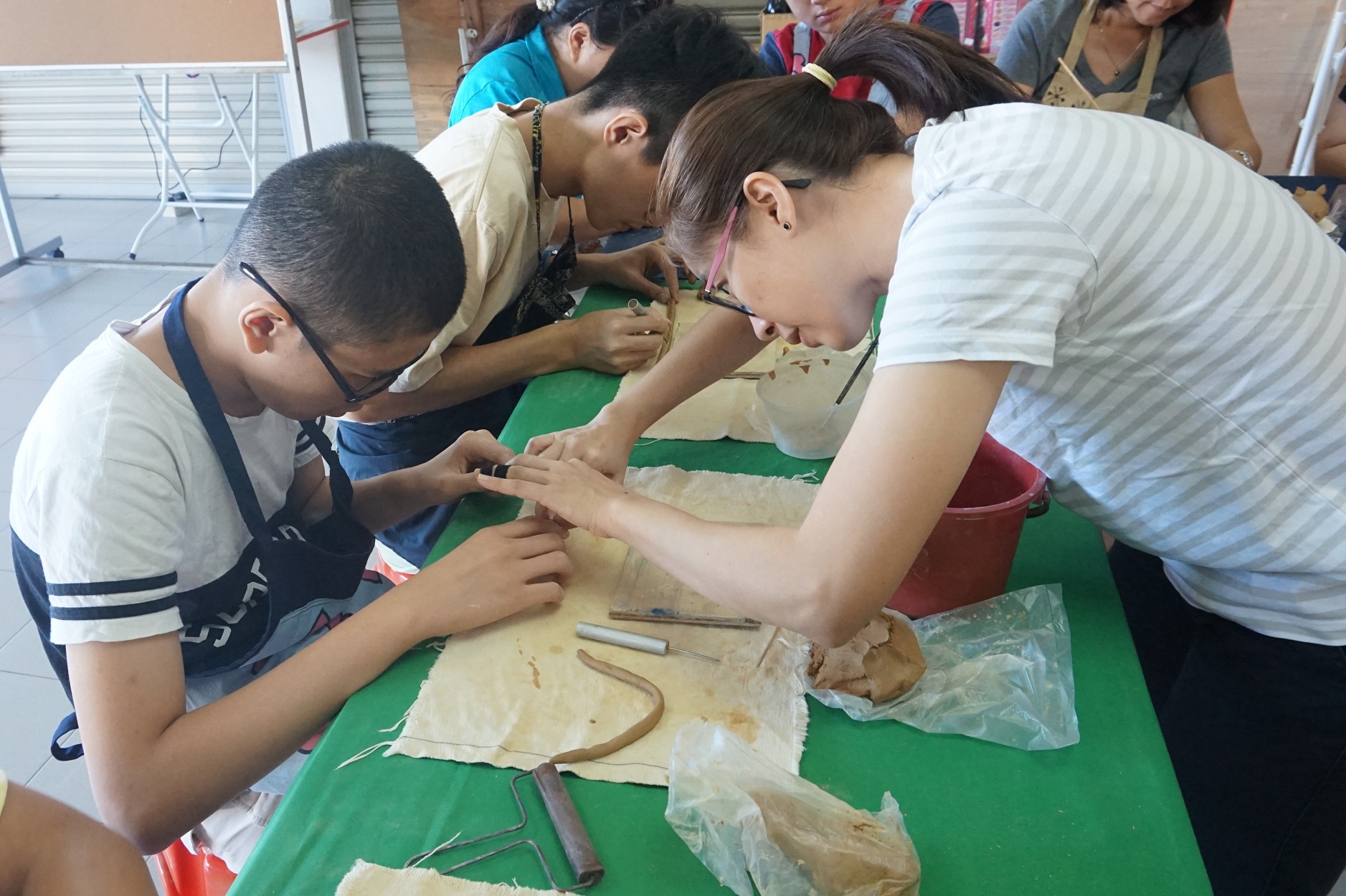
|
12. Traverse Wall Training The traverse wall was introduced as a new programme in March 2011. This activity introduces children aged 13 and above to the use of a climbing wall in a safe manner. They simulate a climb across the traverse wall. This activity also aims to improve body coordination and muscle tone of our children. Apart from training our children to queue for their turn, we also stimulate their problem solving skills and teach them to manage their socio-emotional behaviours. The traverse wall is also an avenue for recreational activity. |
13. Virtual Reality Programme
Virtual Reality Programme was introduced in 2019. Children are encouraged to explore and interact with the environment. This programme also trained our children to express in verbal or non-verbal as well as their hand-eye coordination and motor skills.
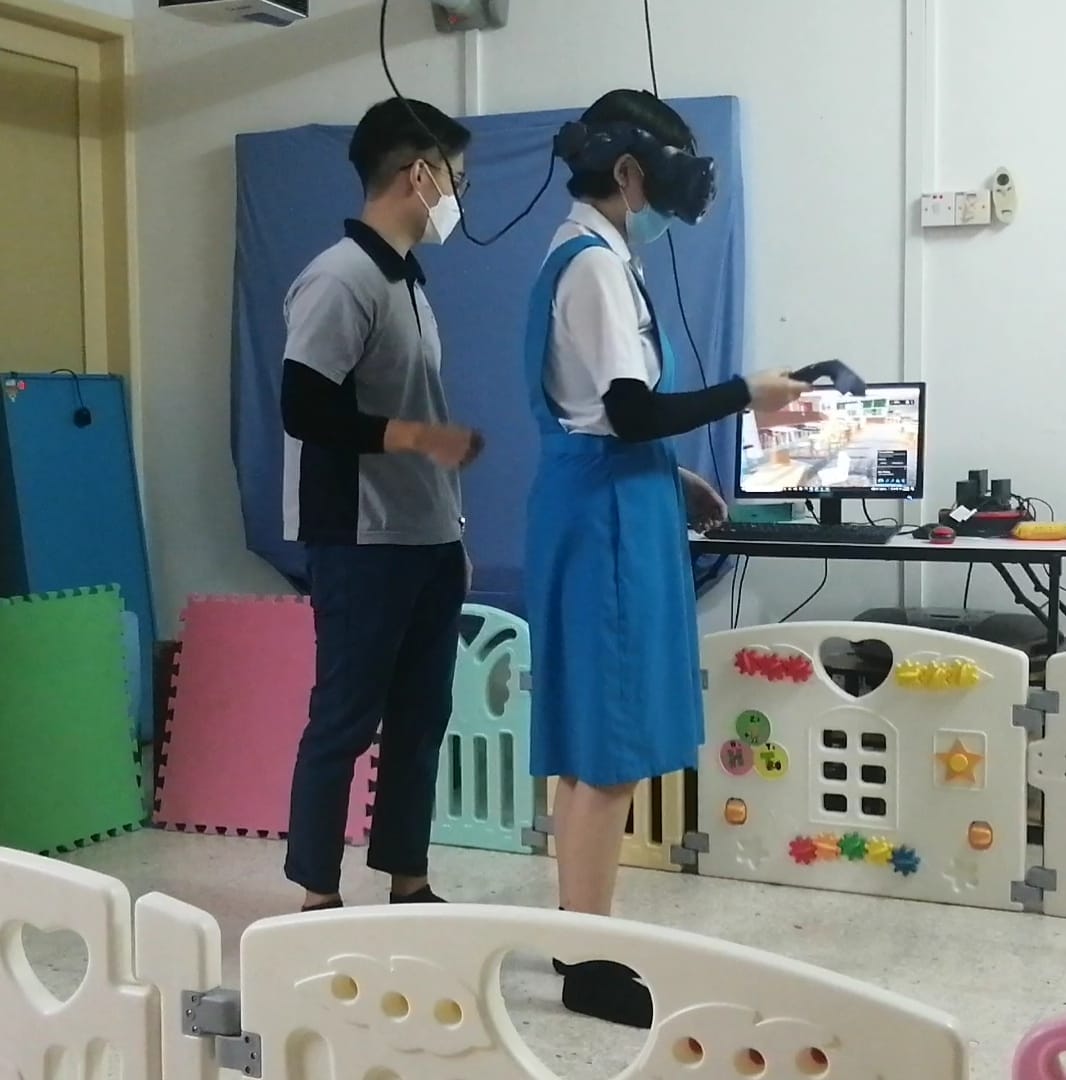
14. Robotics Programme
Robotics Programme was introduced in 2021. Through assembling and coding a robot, the programme trains children to build object identification, concept of three-dimensional (3D), improve visual perception and enhance logical thinking.
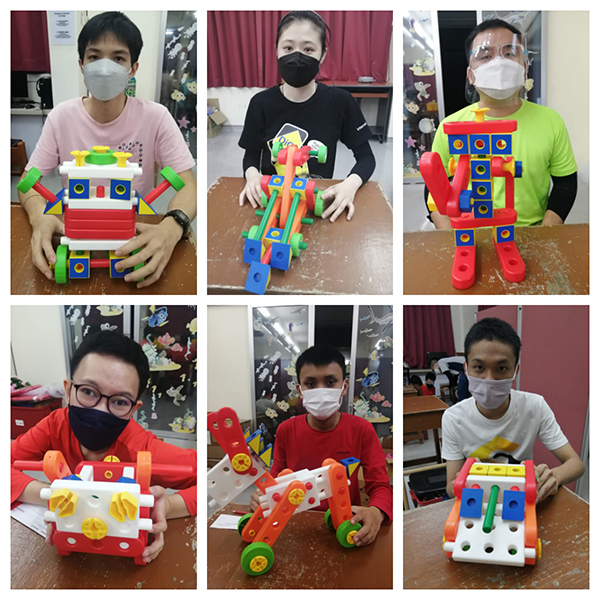
|
15. Community Living Camp Community Living Camp is organised to train our children with autism to live independently away from home and together with their friends from our centre. It is designed to improve their survival skills. We hope that through community living camps, we are able to encourage independent living so that our children with autism can be self-supporting when they grow up and especially so when their parents are not around anymore to guide them. |
16. Recreation & Sports
Children who are capable are selected to join recreation and sports organized such as swimming, tennis, dancing, cooking, photography and so on.

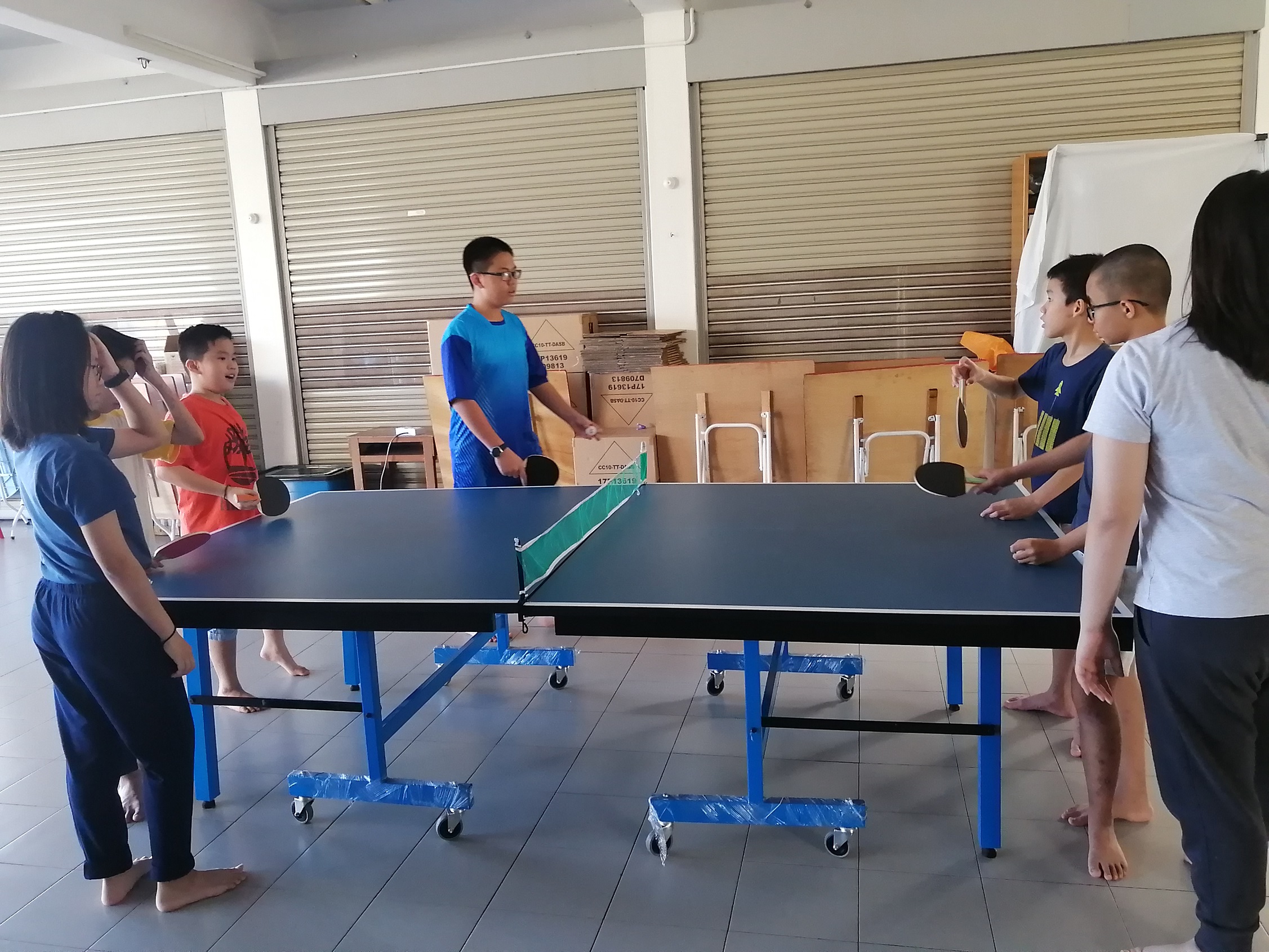

17. New Norm Learning
New Norm Learning was launched in December 2022. It will be a learning platform for children and young adults with autism to learn concepts and academic topics through multimedia platform in groups.
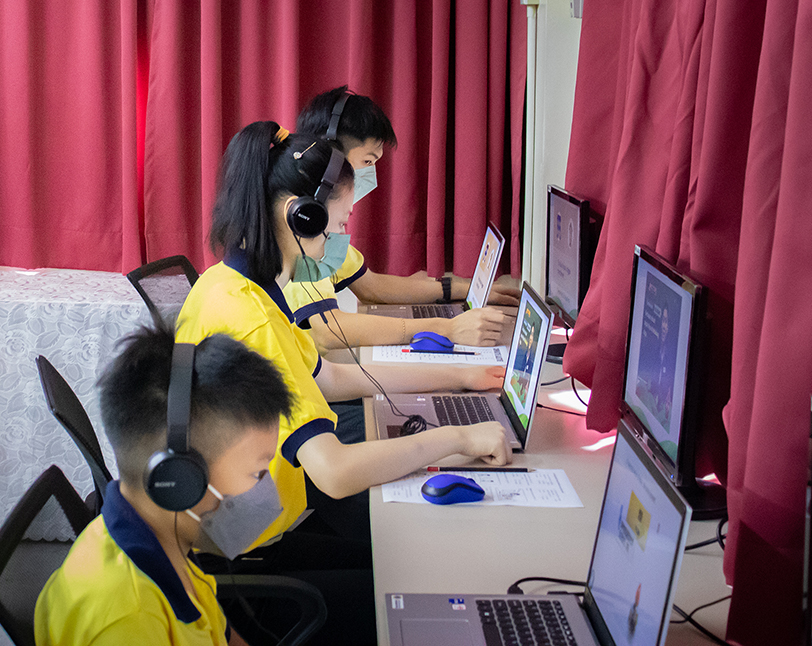
18. Culinary & Baking Training
Culinary & Baking Training was launched in December 2022. It will be a training platform for adolescents and young adults with autism to acquire the culinary and baking skills..
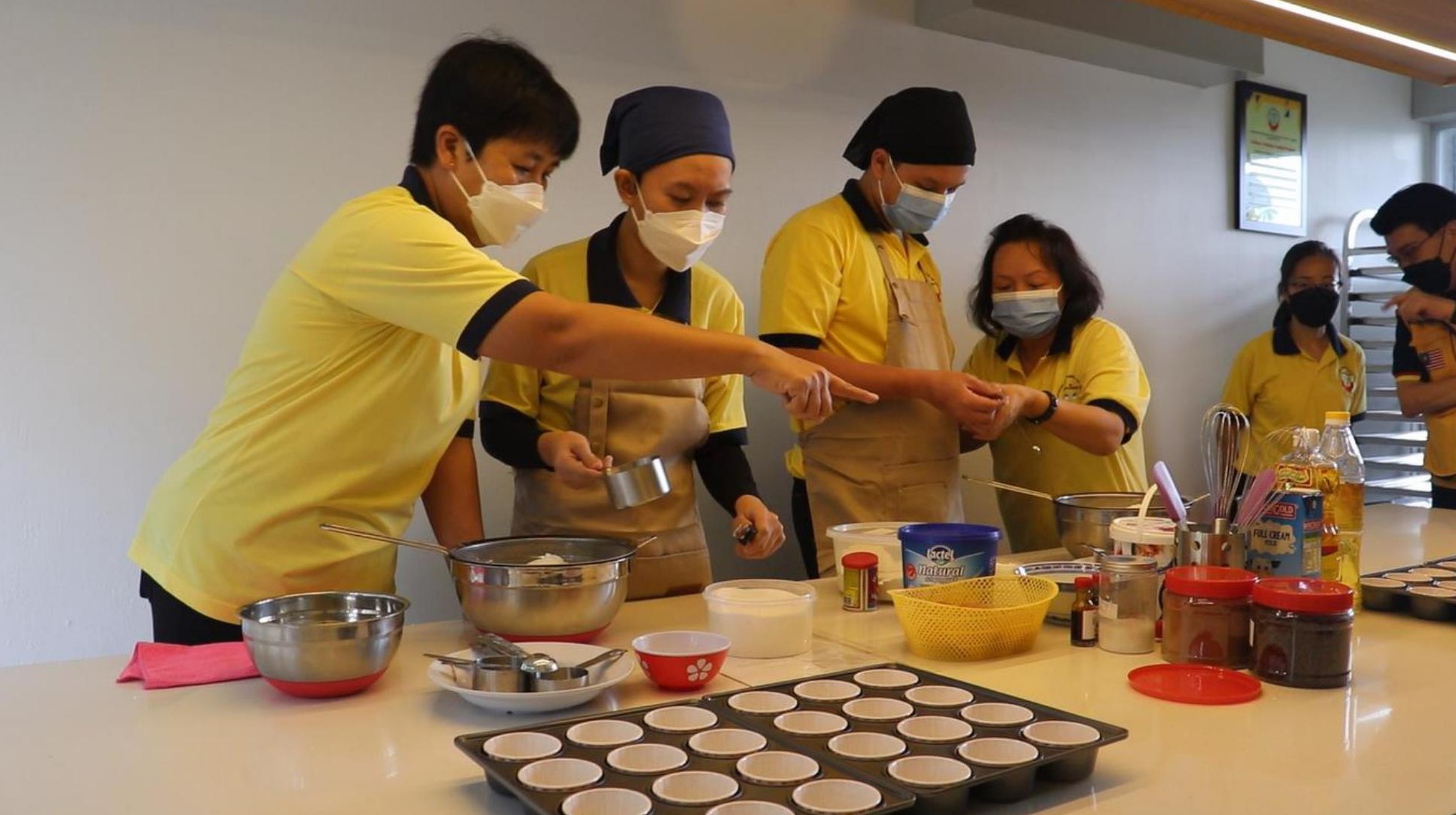
19. Autism Kiosk
Autism Kiosk was launched in December 2022. It will be a training platform for adolescents and young adults with autism to acquire the serving and catering skills.
